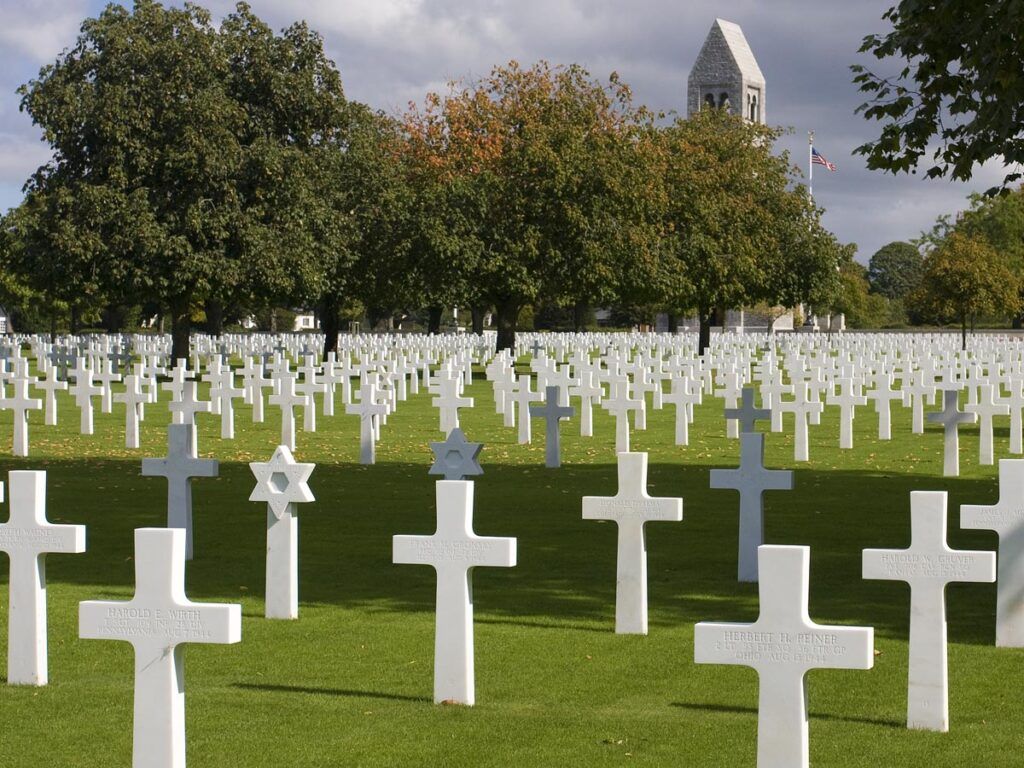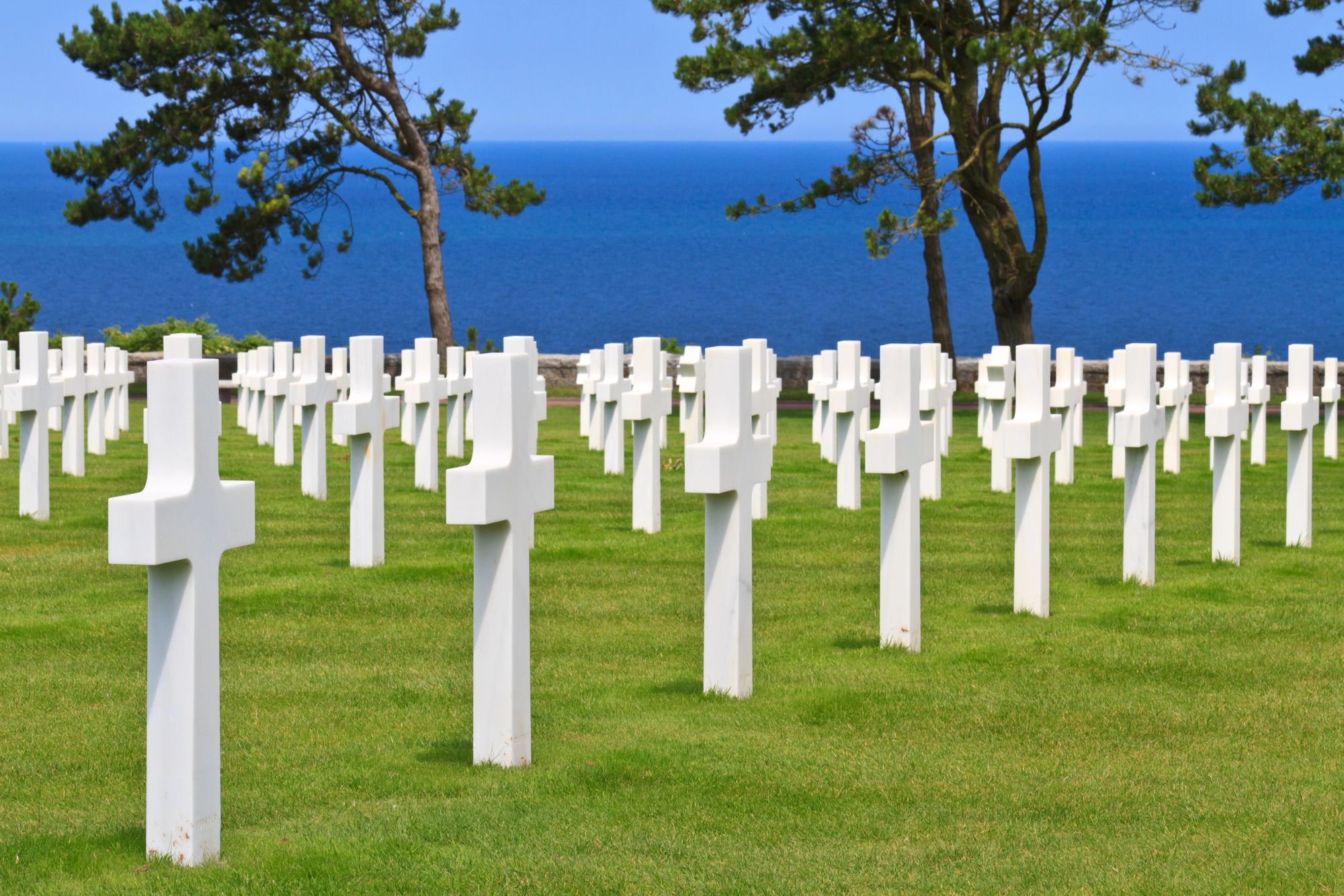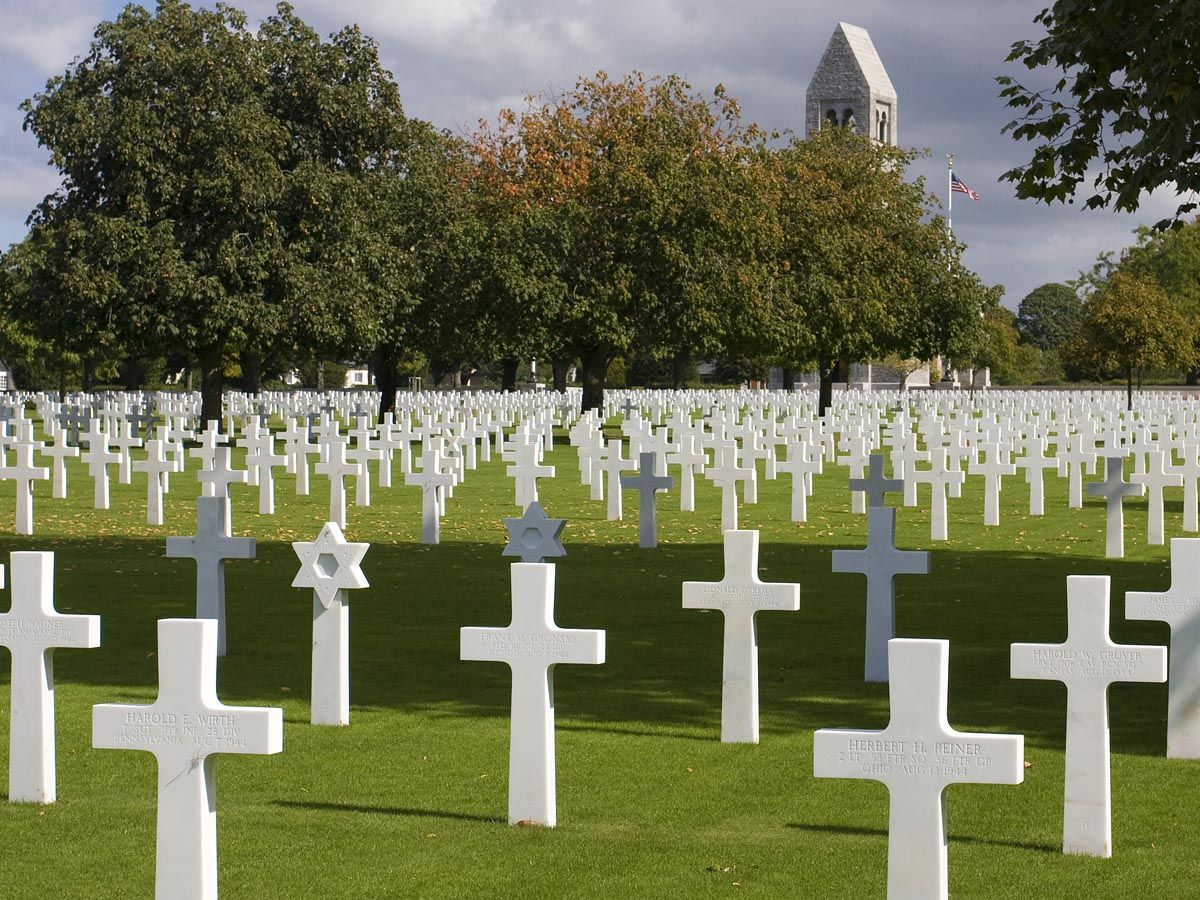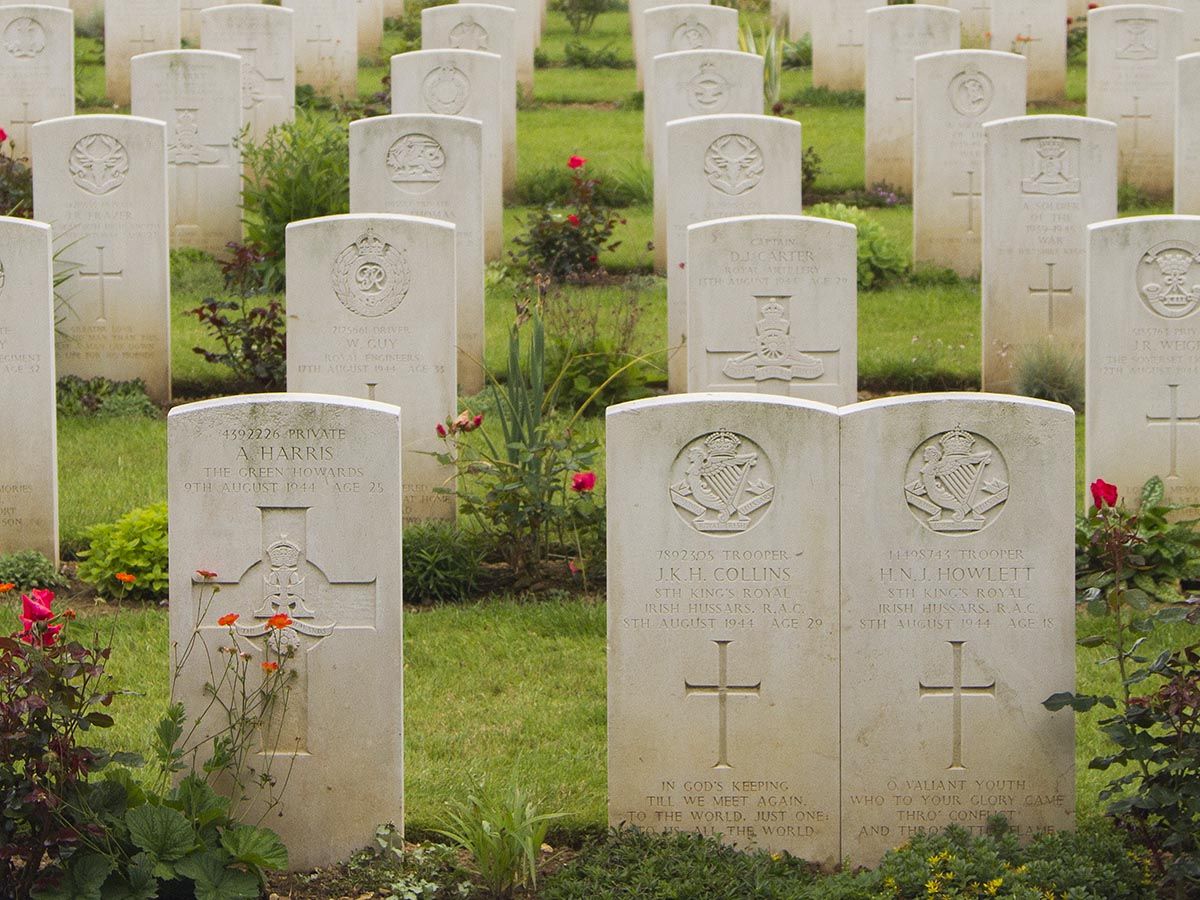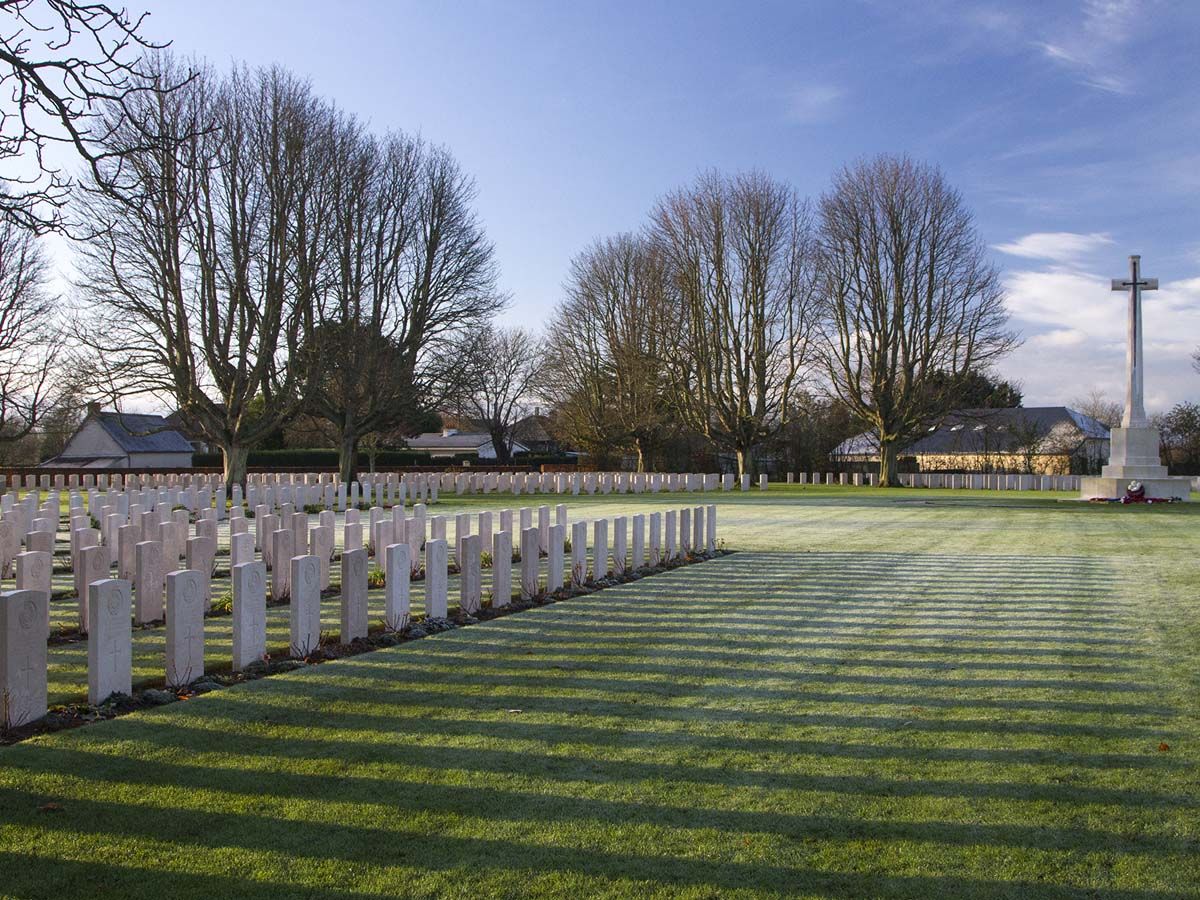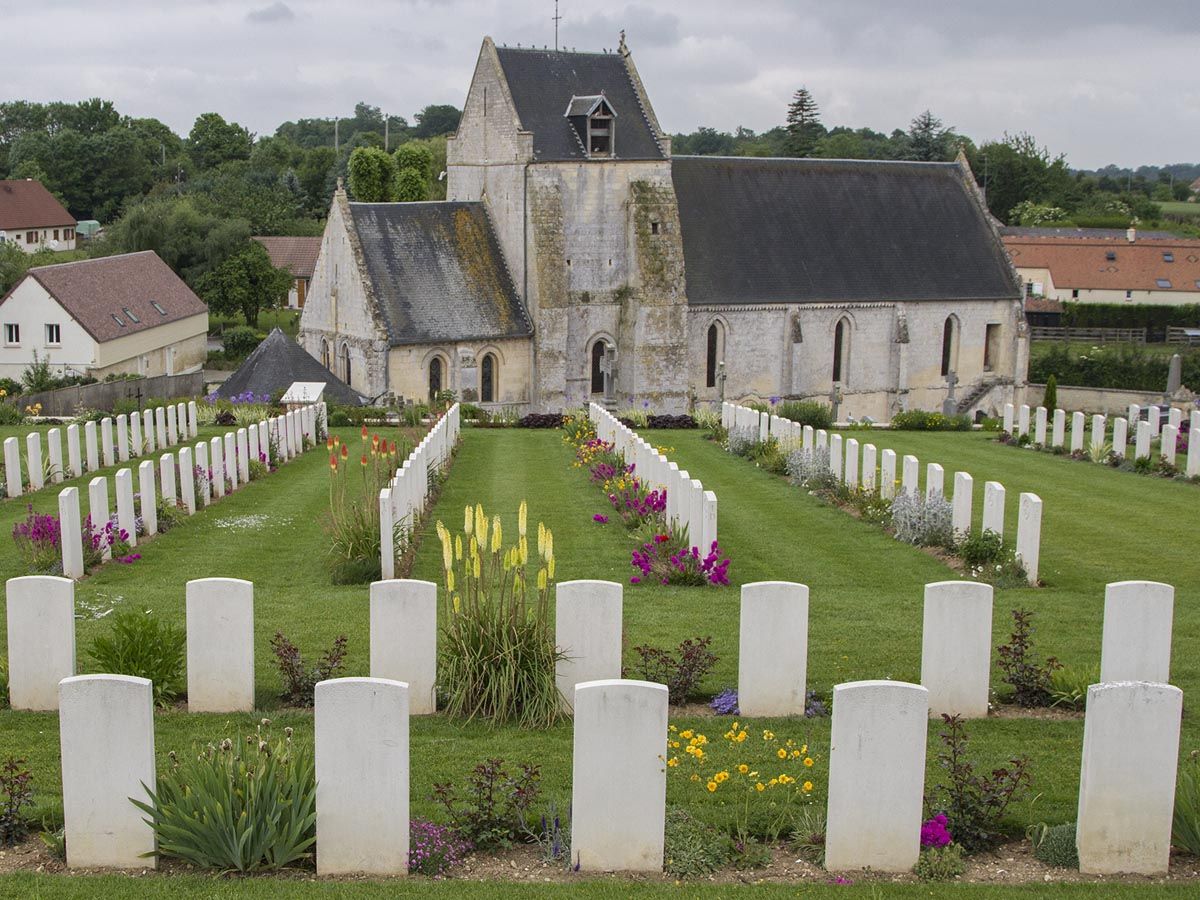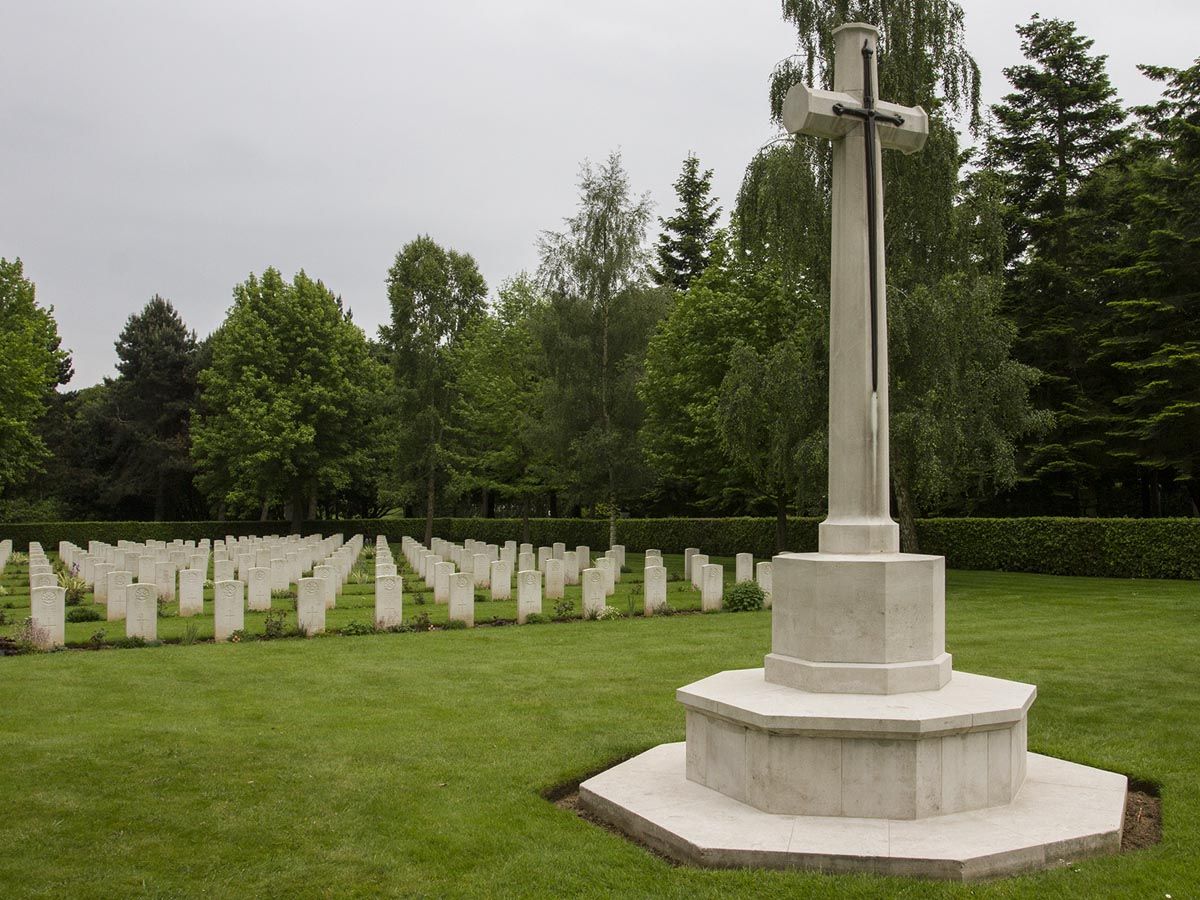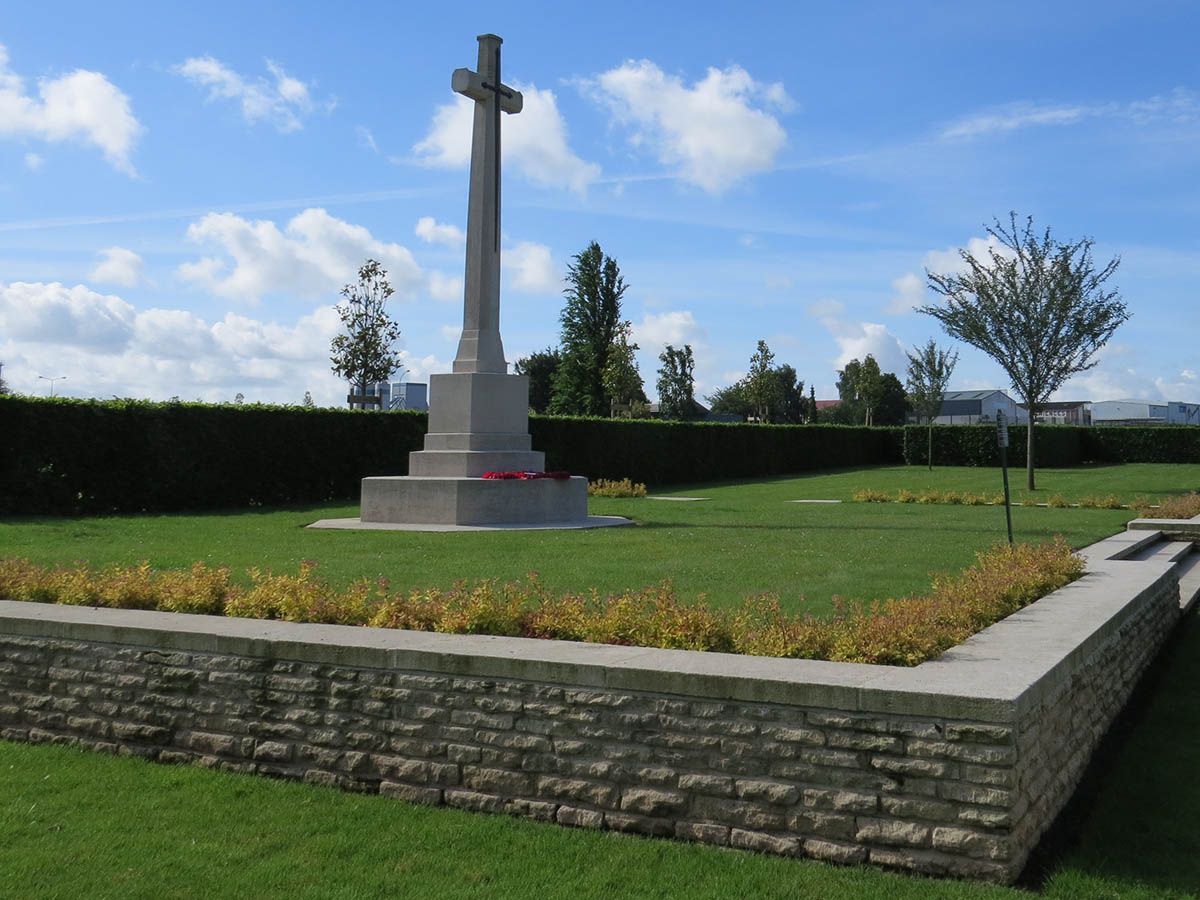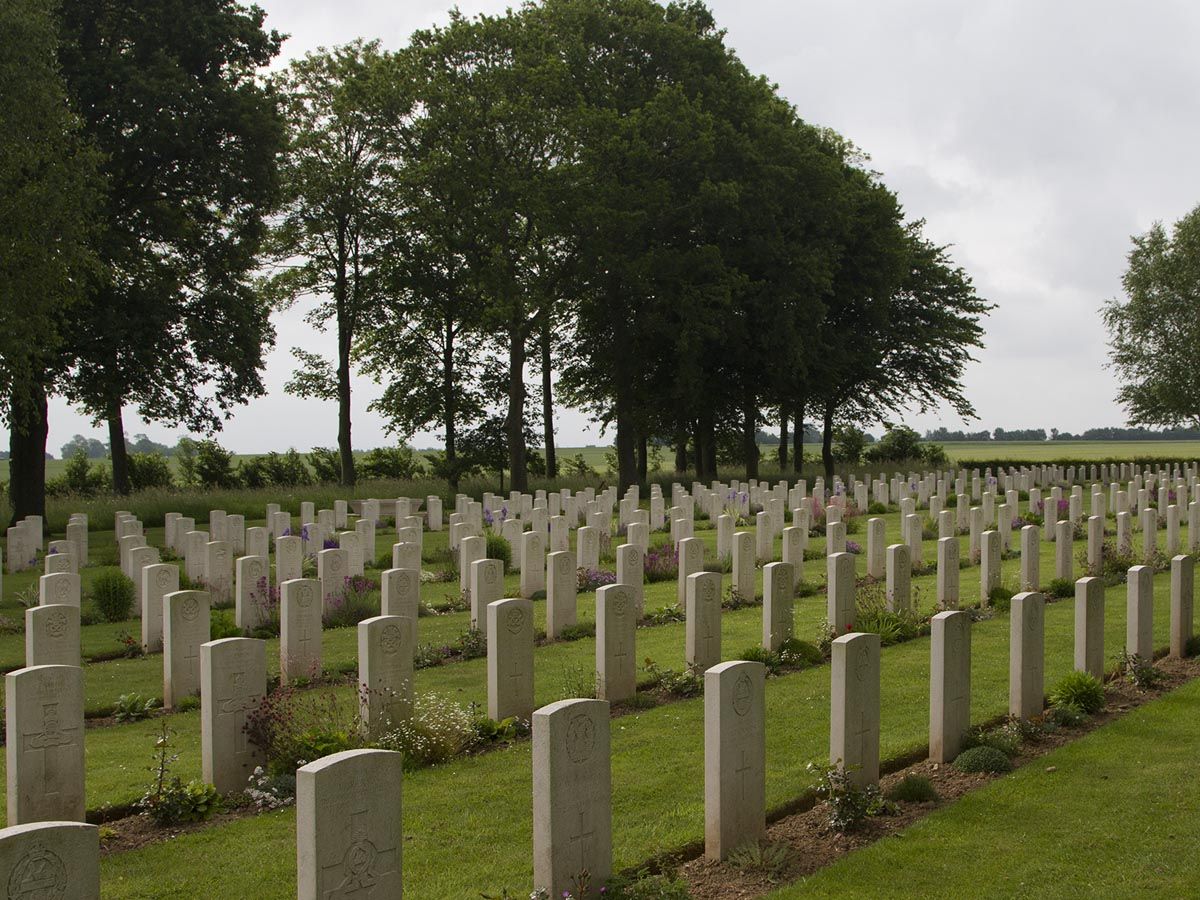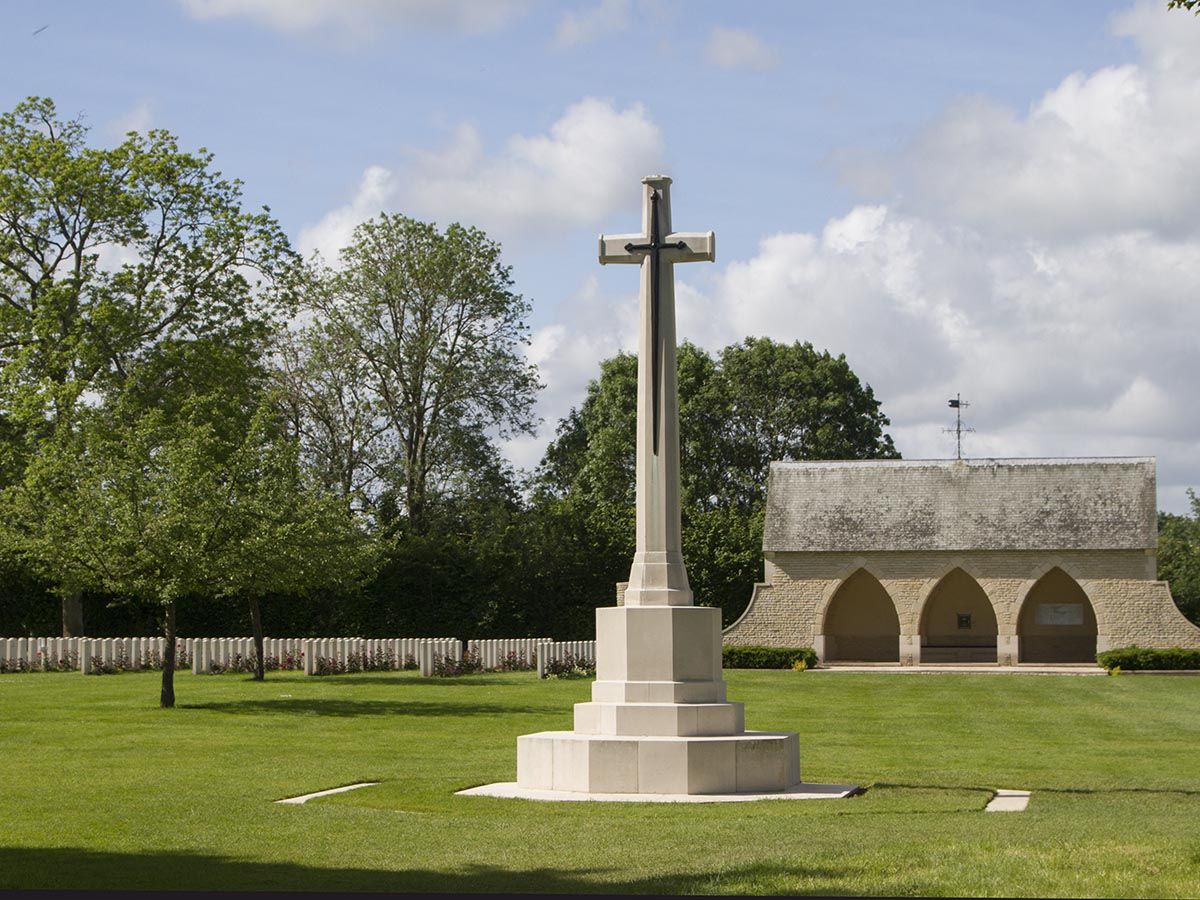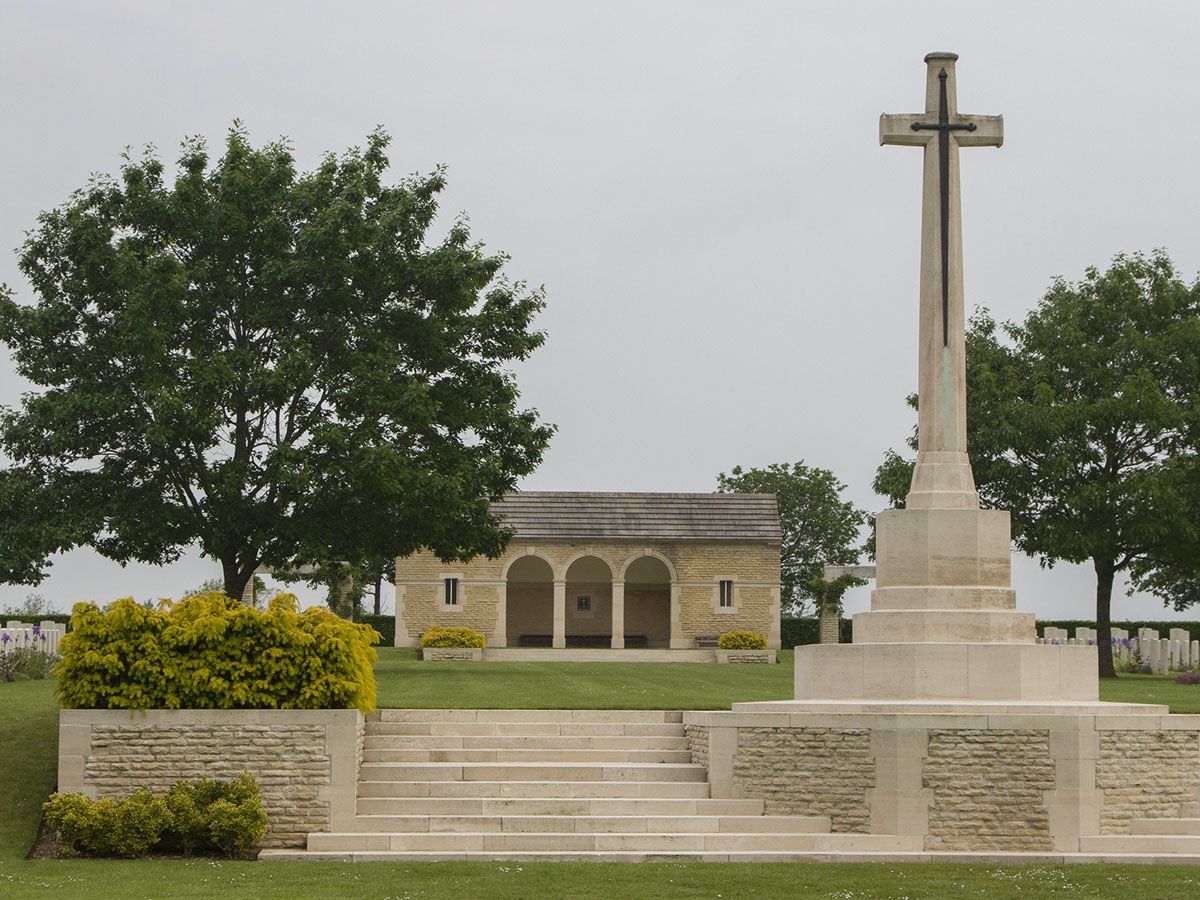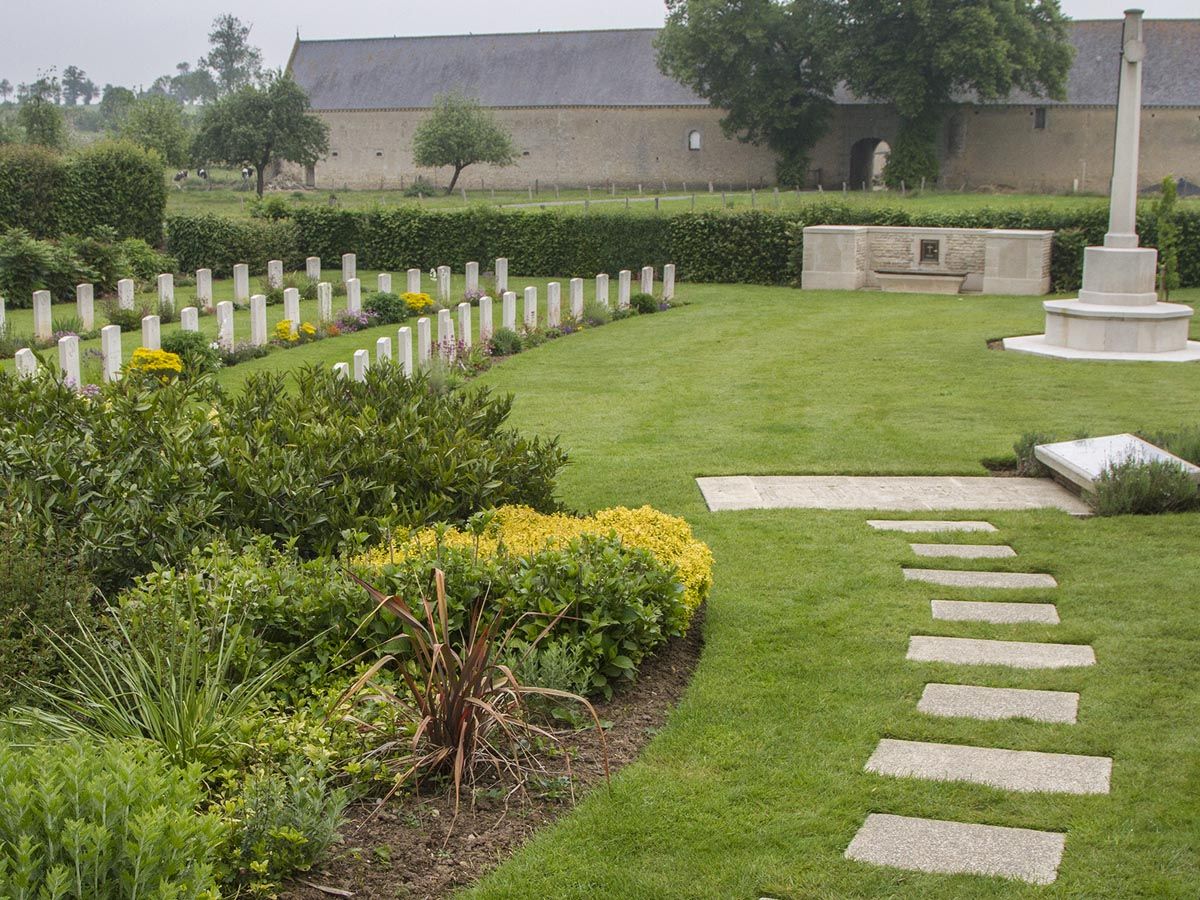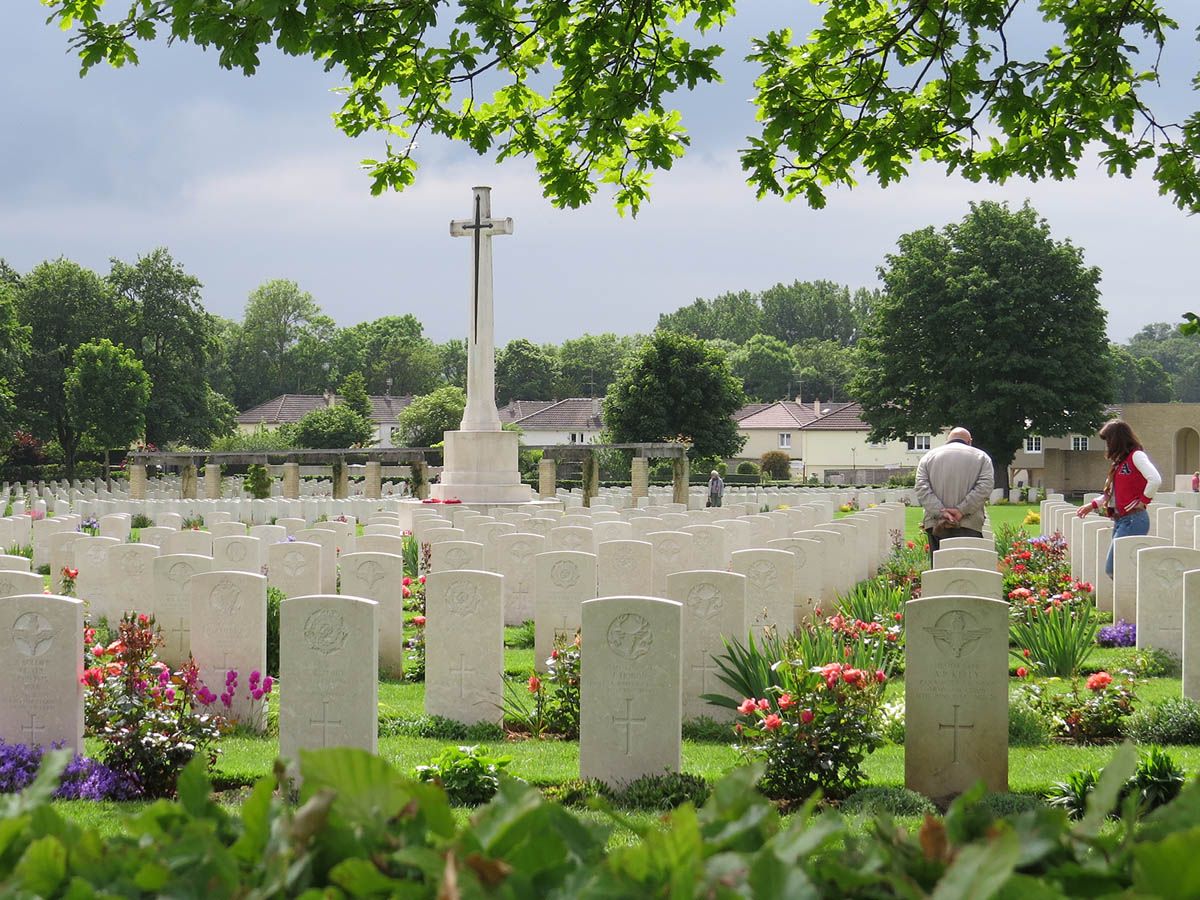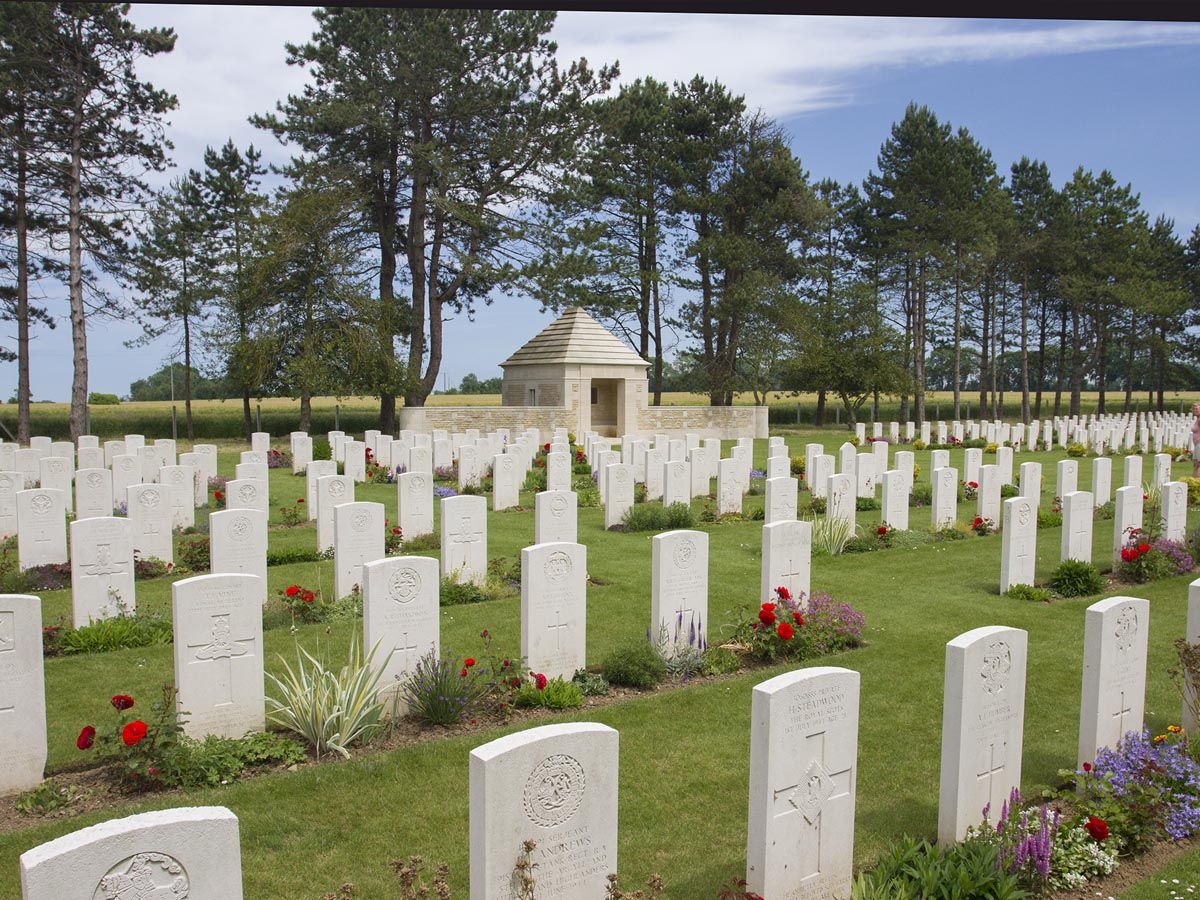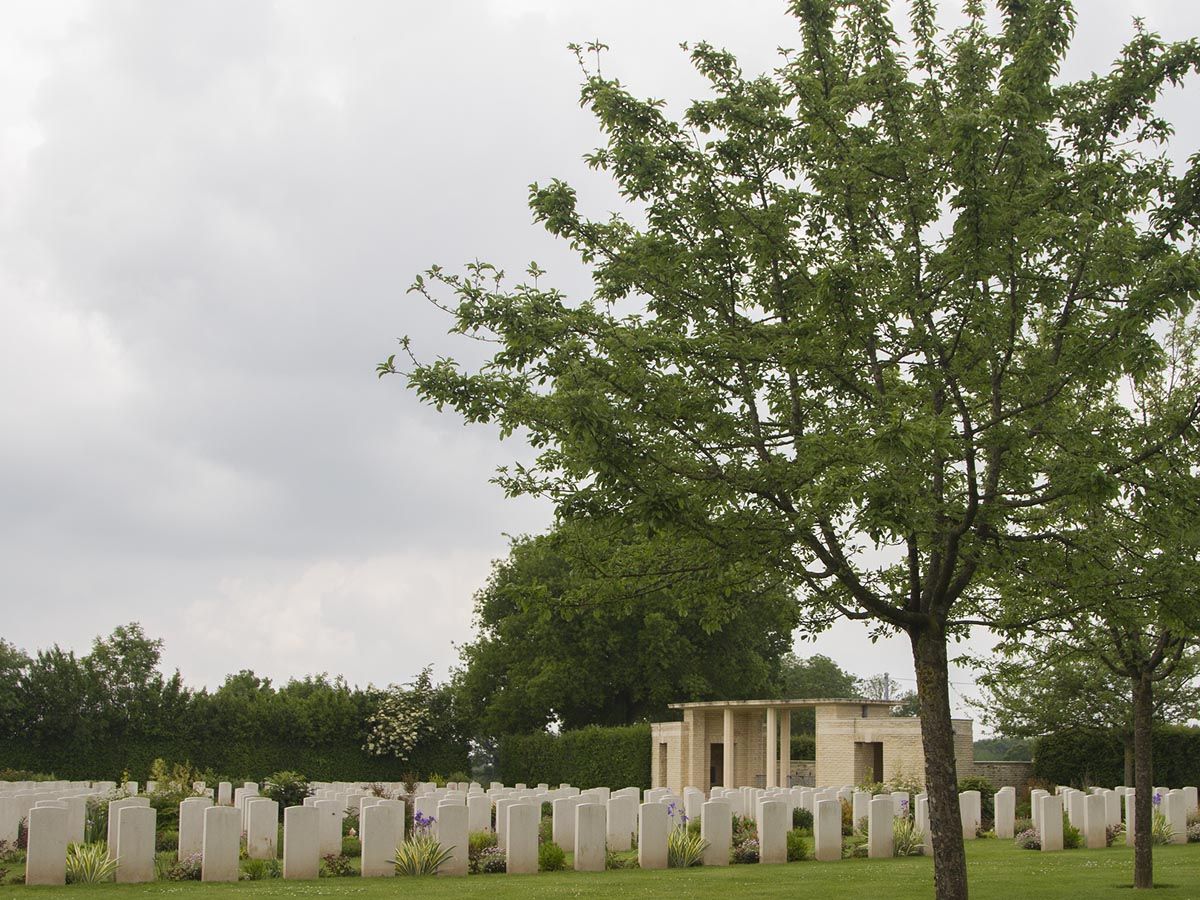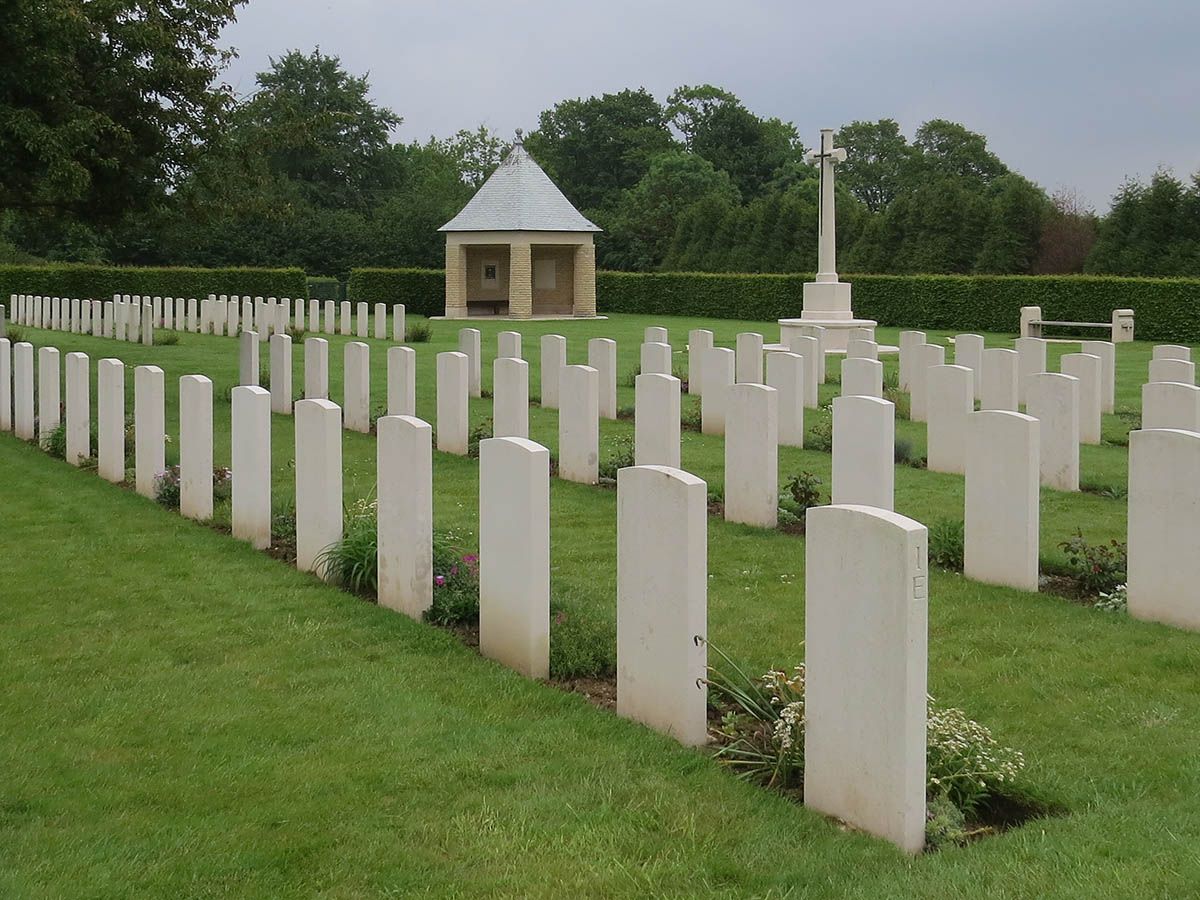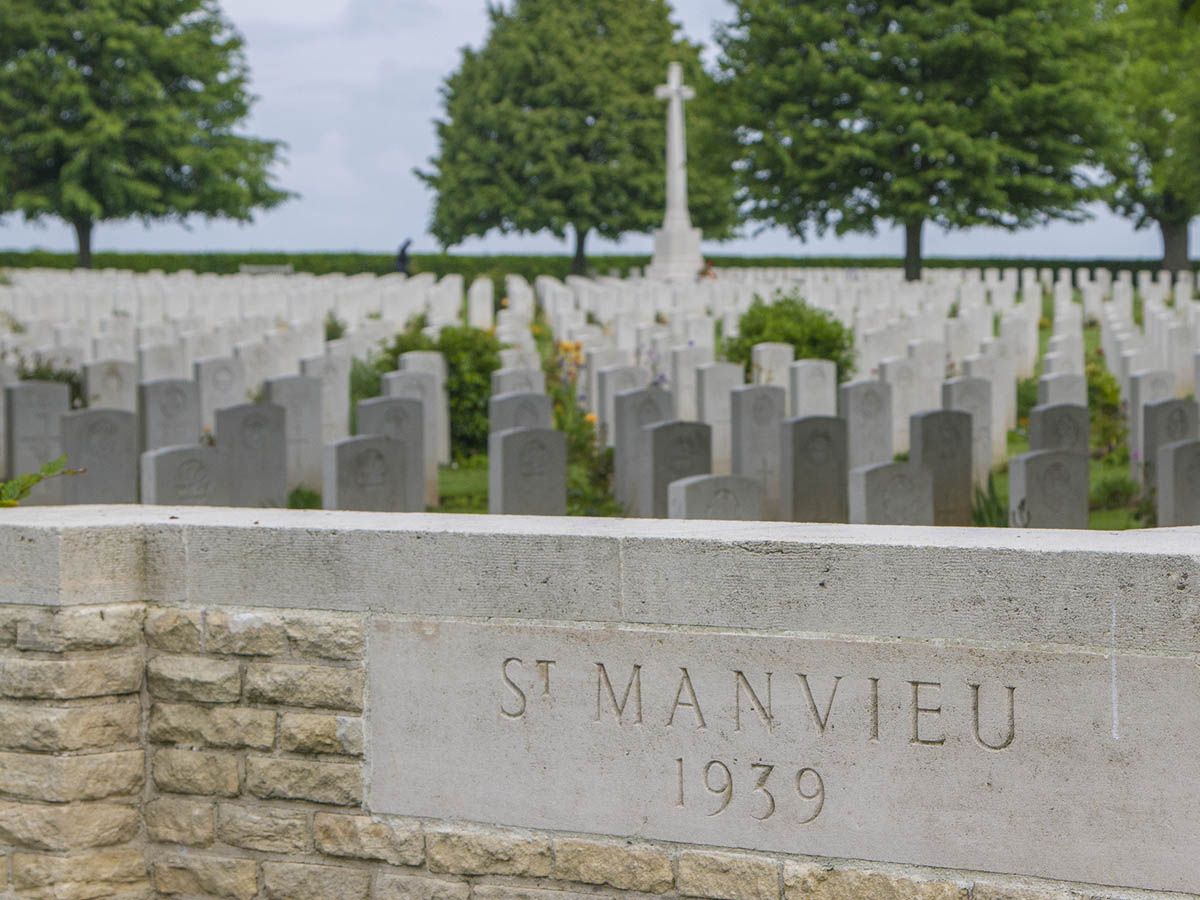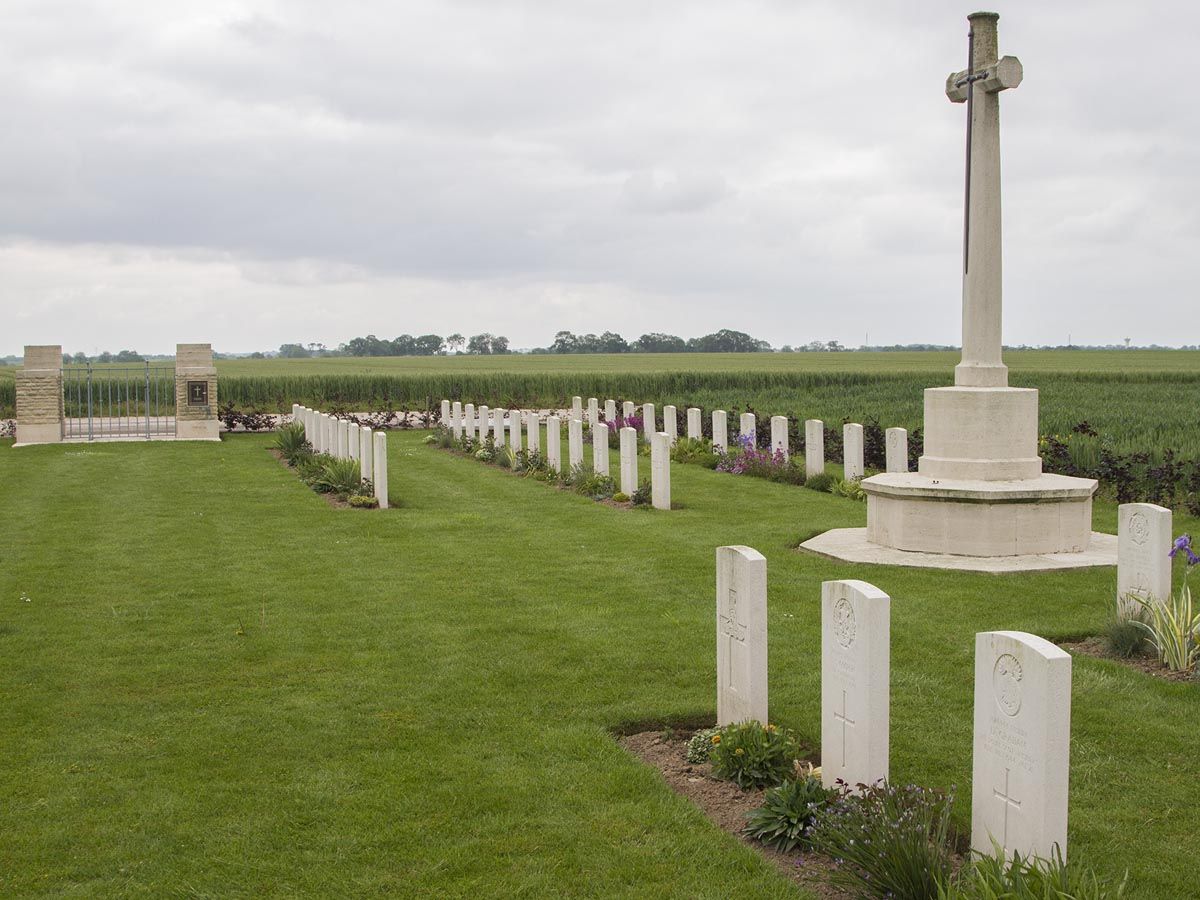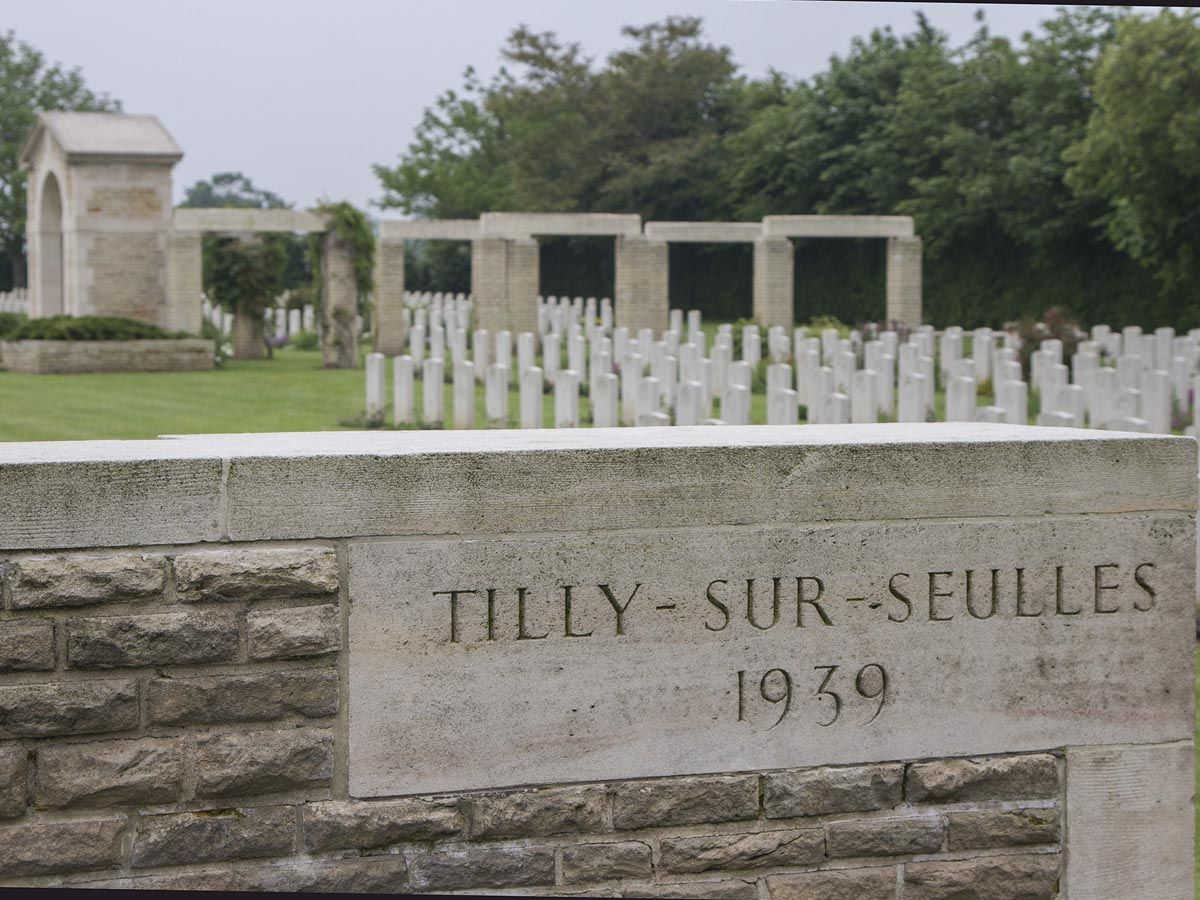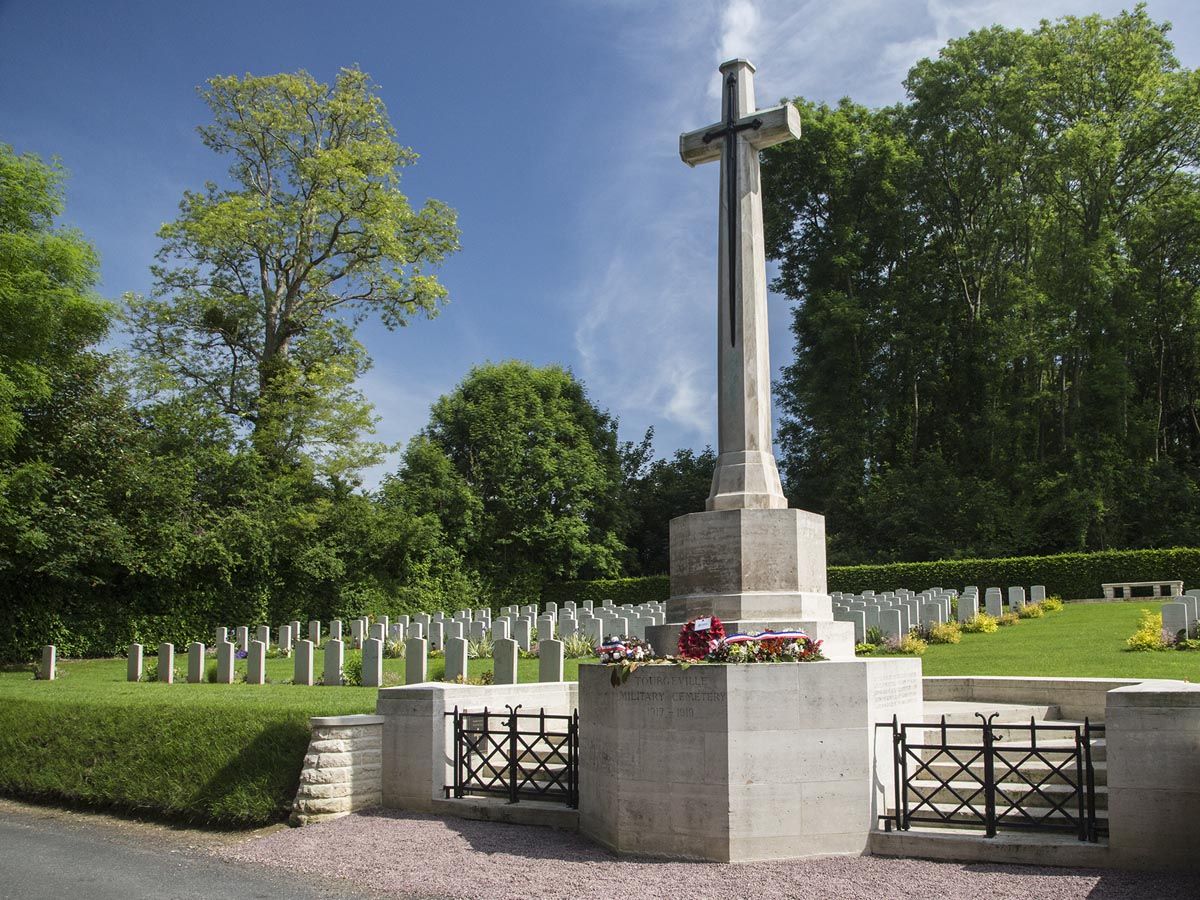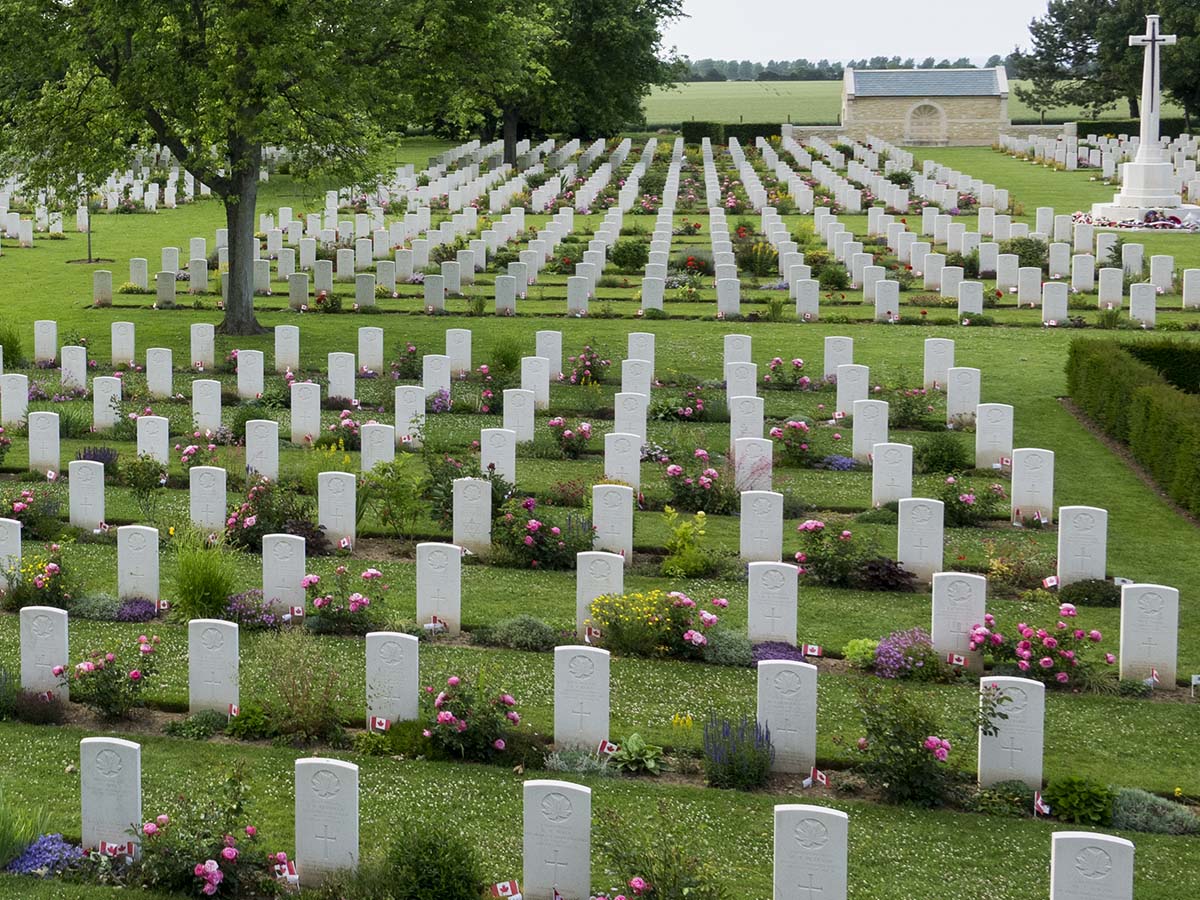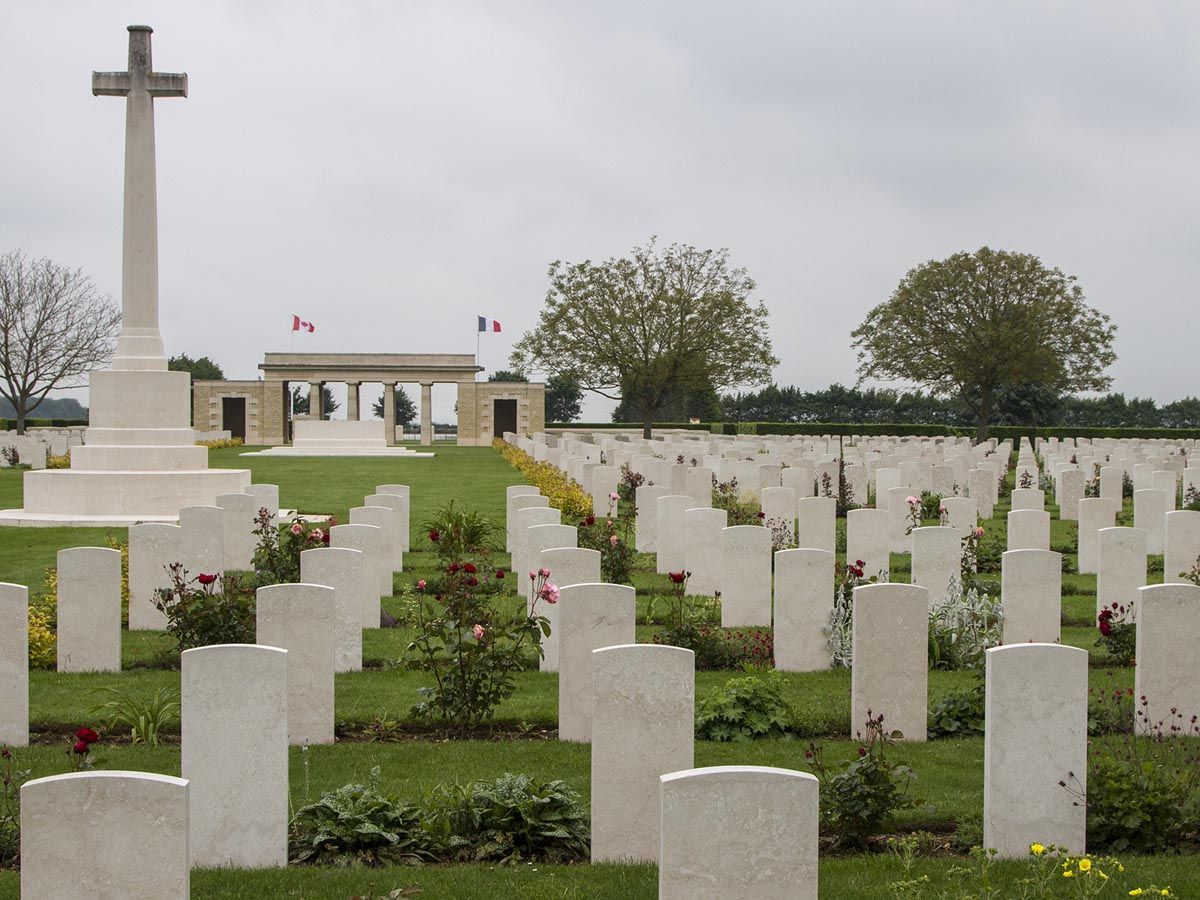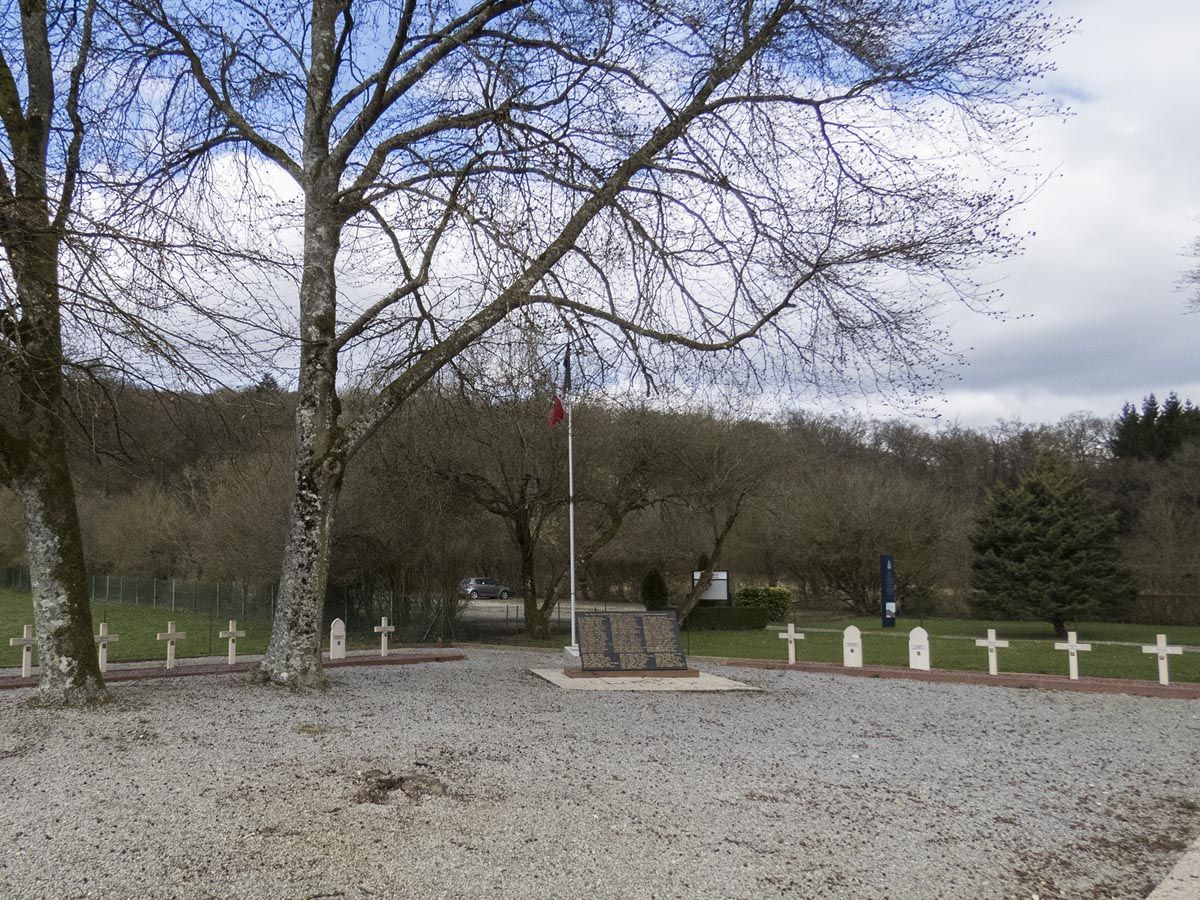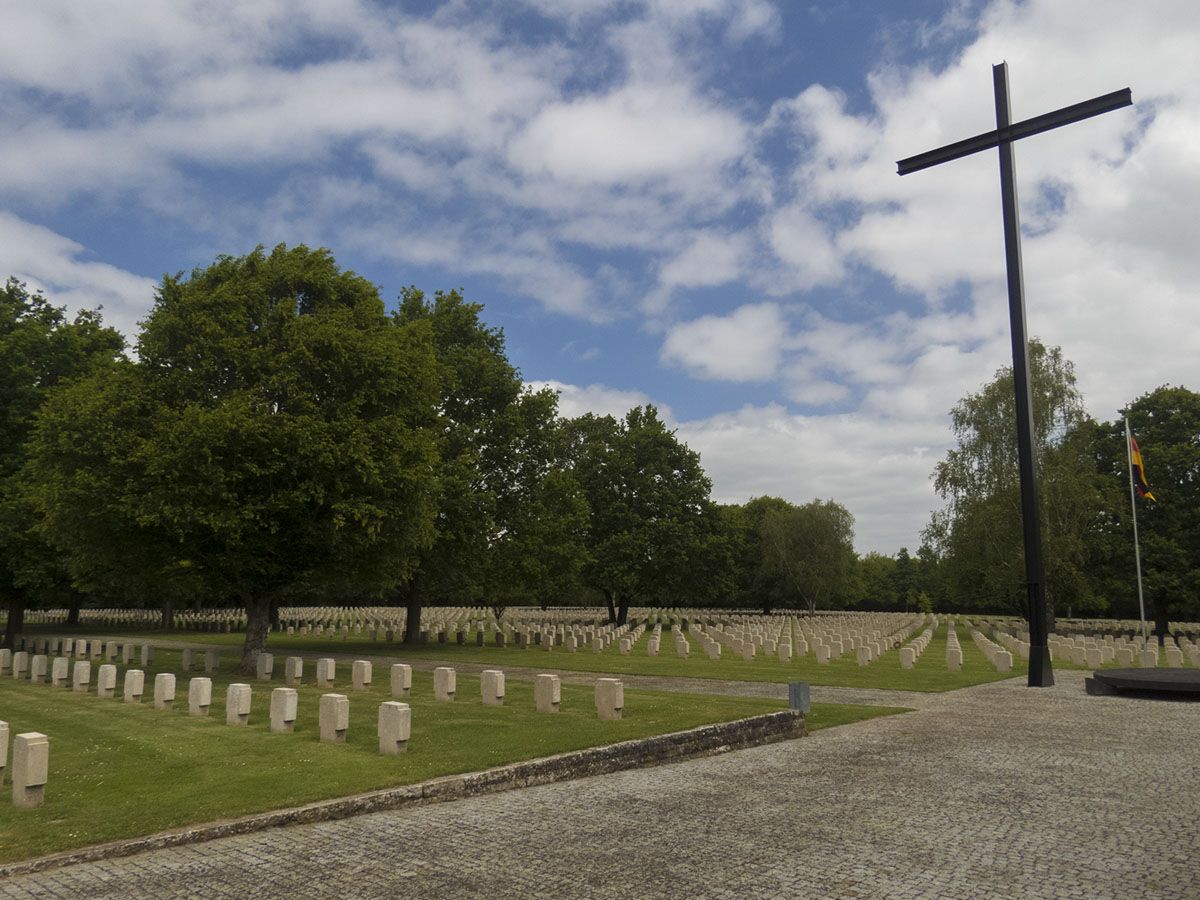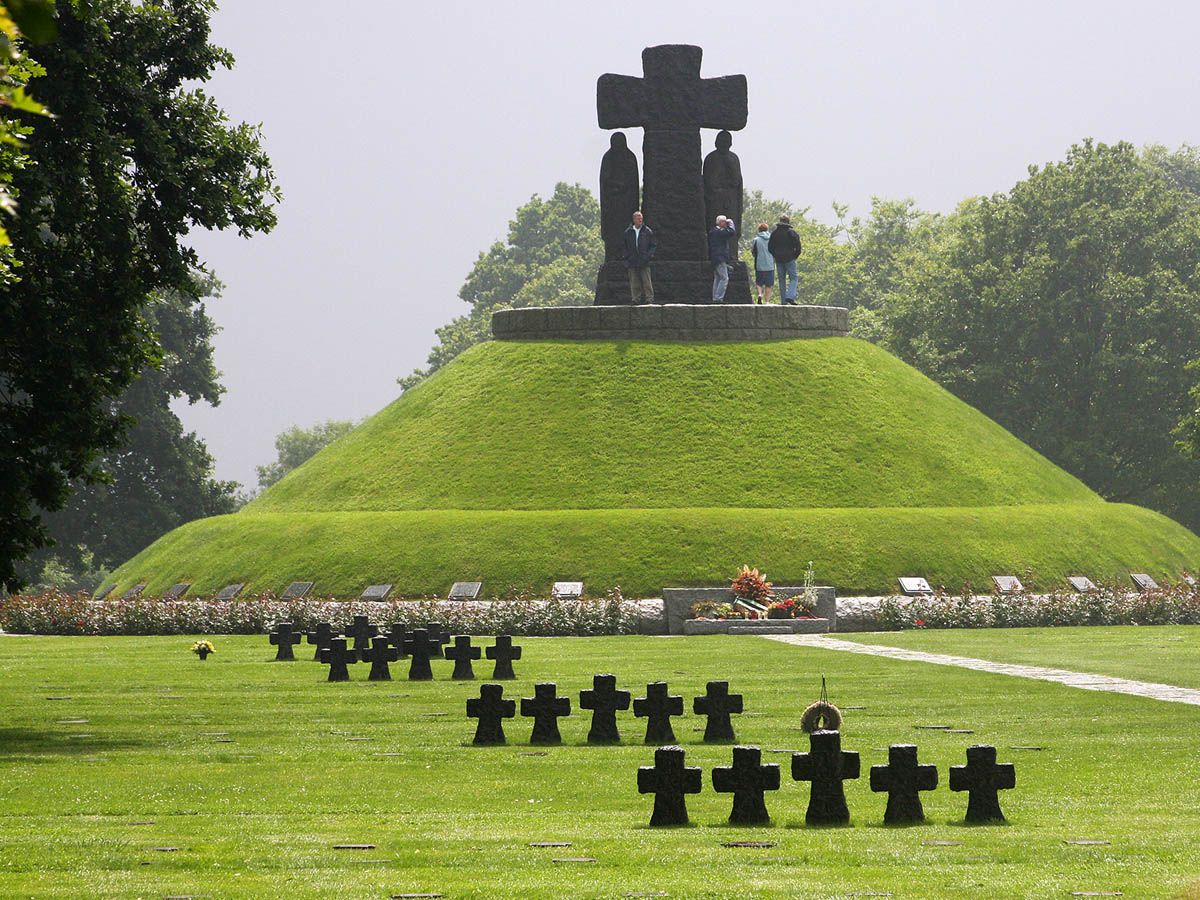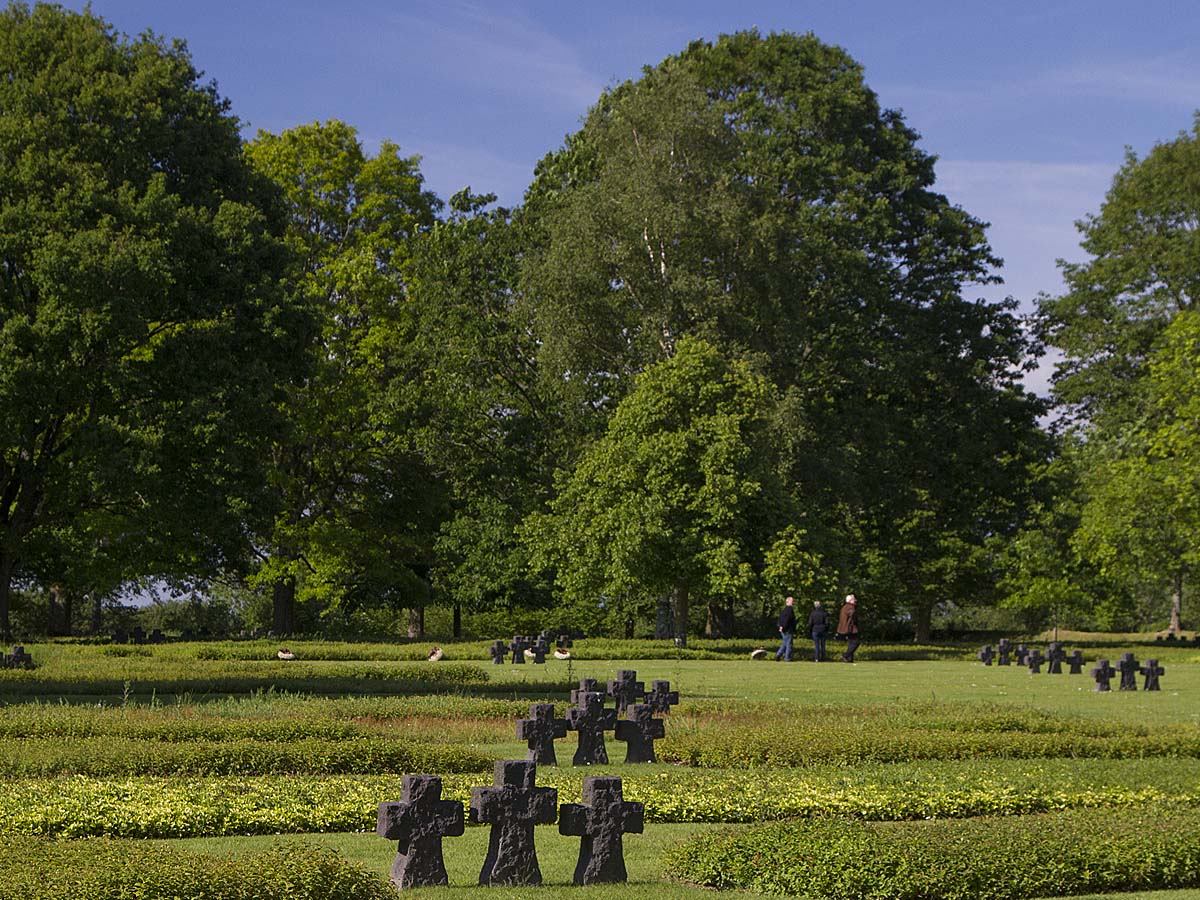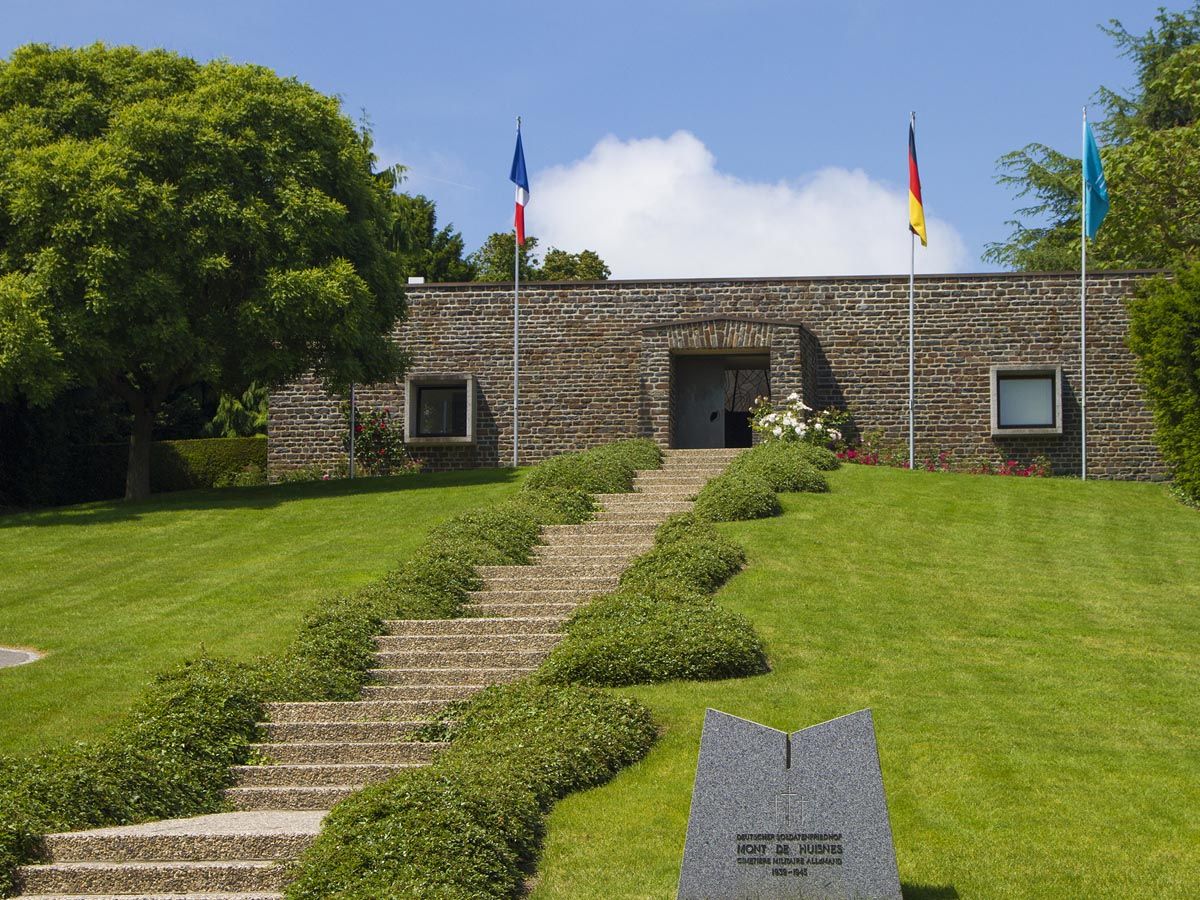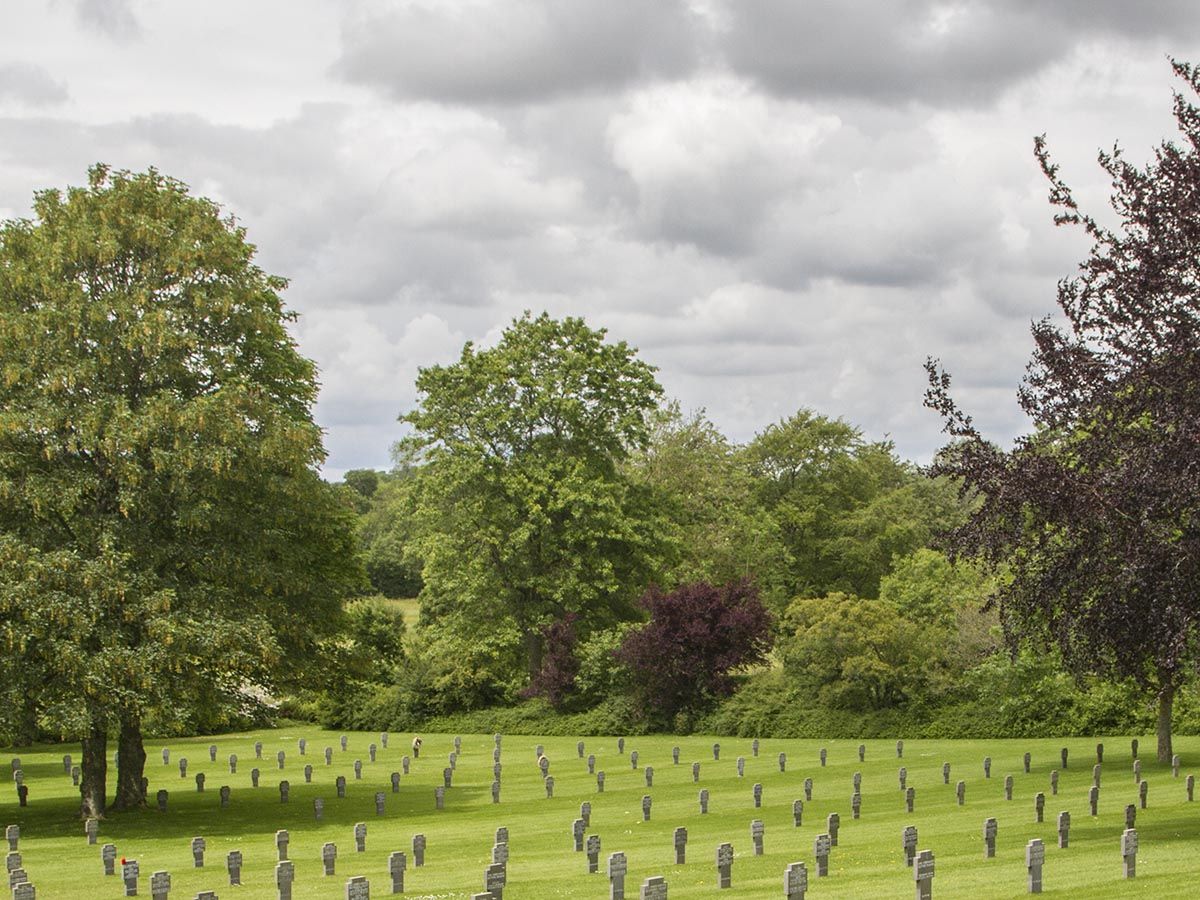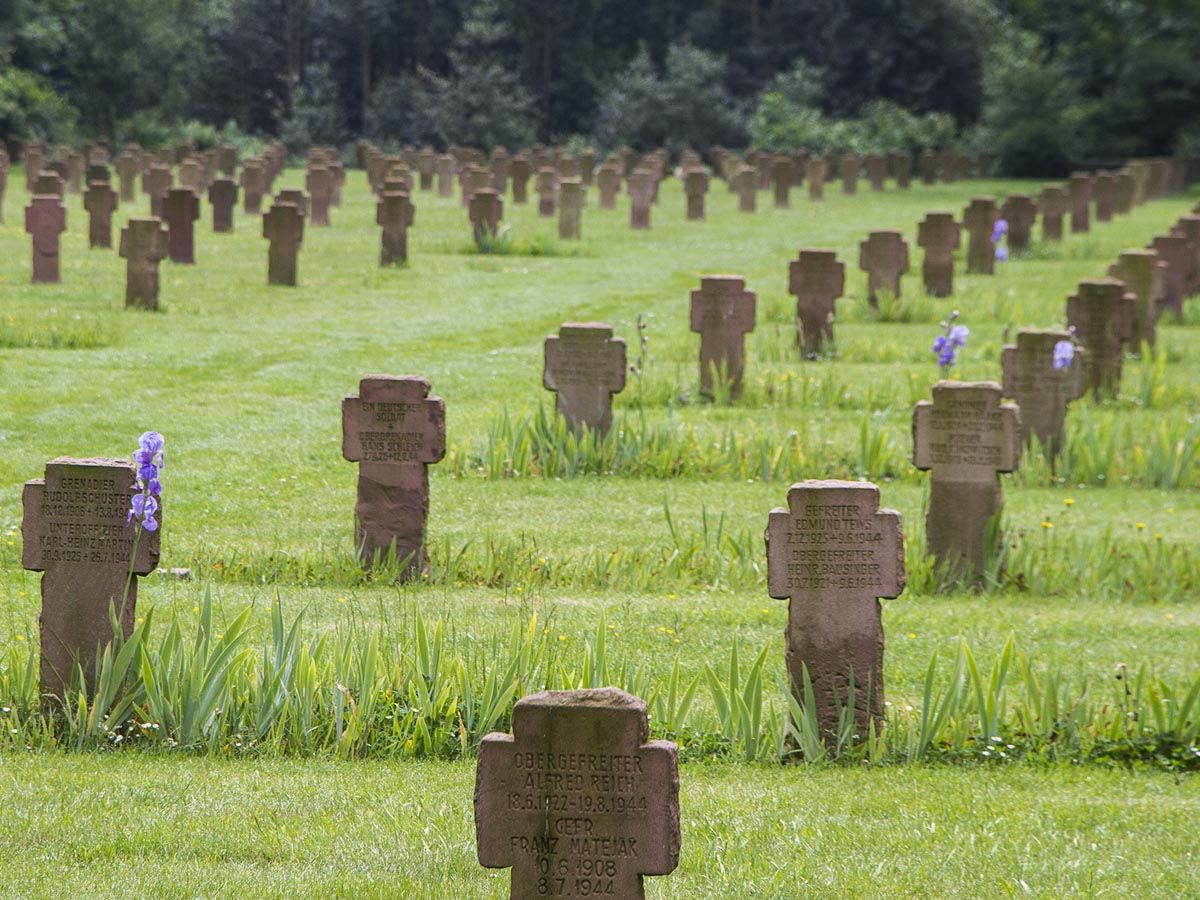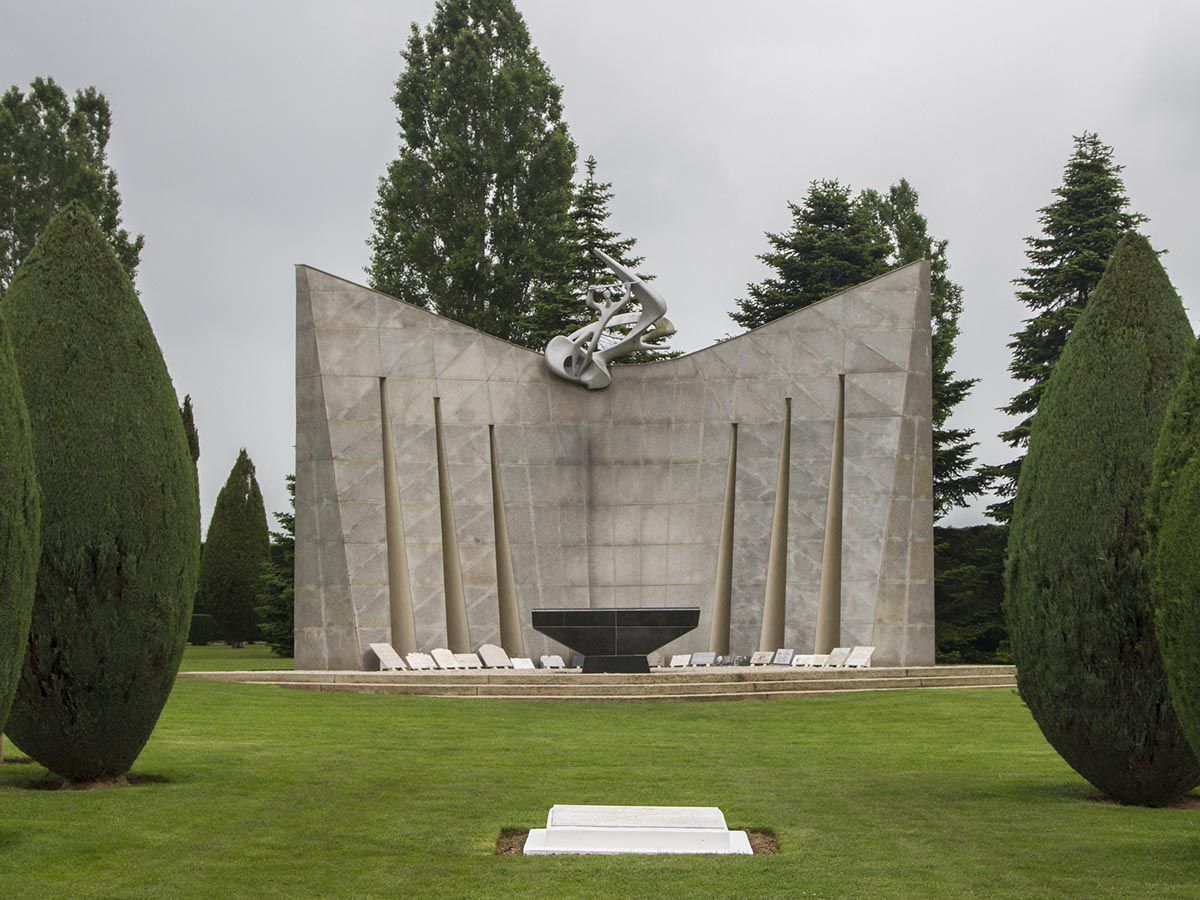Nestled in the rolling farm country near the eastern edge of Brittany, France, the Brittany American Cemetery and Memorial is a solemn tribute to those who made the ultimate sacrifice during World War II. The cemetery spans 28 acres and serves as the final resting place for American soldiers who fought for freedom on European soil. The cemetery offers visitors a powerful opportunity to pay respects to fallen heroes while experiencing an important piece of shared American and French history.
When planning your visit, consider combining your trip to the Brittany American Cemetery with nearby Mont Saint-Michel, a stunning medieval abbey perched dramatically on a rocky island. This pairing creates a meaningful day that balances somber reflection with architectural wonder. The cemetery staff offers free guided tours upon request, giving you deeper insights into the stories of courage and sacrifice that unfolded during the war.
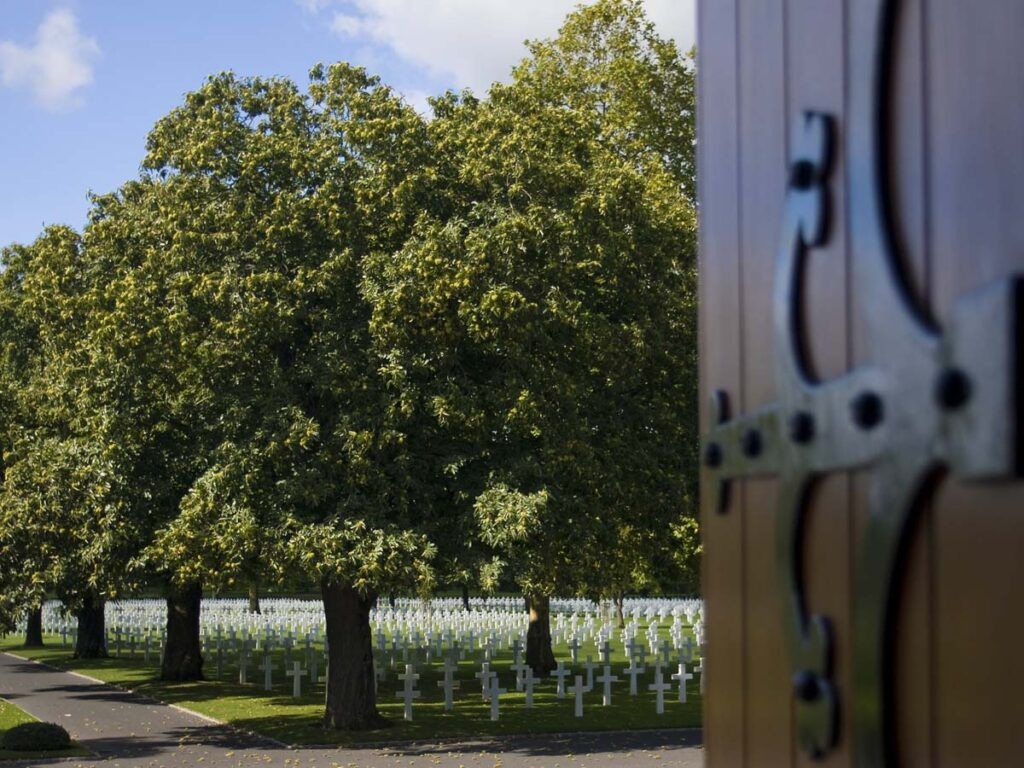
History of the Brittany American Cemetery
The Brittany American Cemetery honors American soldiers who fought in the critical Normandy and Brittany campaigns of 1944. This hallowed ground tells the story of American sacrifice and the push that helped turn the tide of World War II in Europe.
The Importance of Brittany in World War II
Brittany played a strategic role in the Allied campaign to liberate France. After the D-Day landings, American forces needed to break out of the Normandy beachheads and push into mainland France. The hedgerow country of Brittany presented a natural defensive barrier that German forces used to slow the American advance.
In summer 1944, the U.S. Third Army, led by General Patton, launched operations to capture the vital ports in Brittany. These ports were essential for supplying the Allied forces pushing eastward. The fighting was intense, with American troops battling through difficult terrain against determined German resistance.
The breakthrough from Normandy’s hedgerows into the plains of Northern France marked a turning point in the European campaign. This victory came at a heavy cost in American lives.
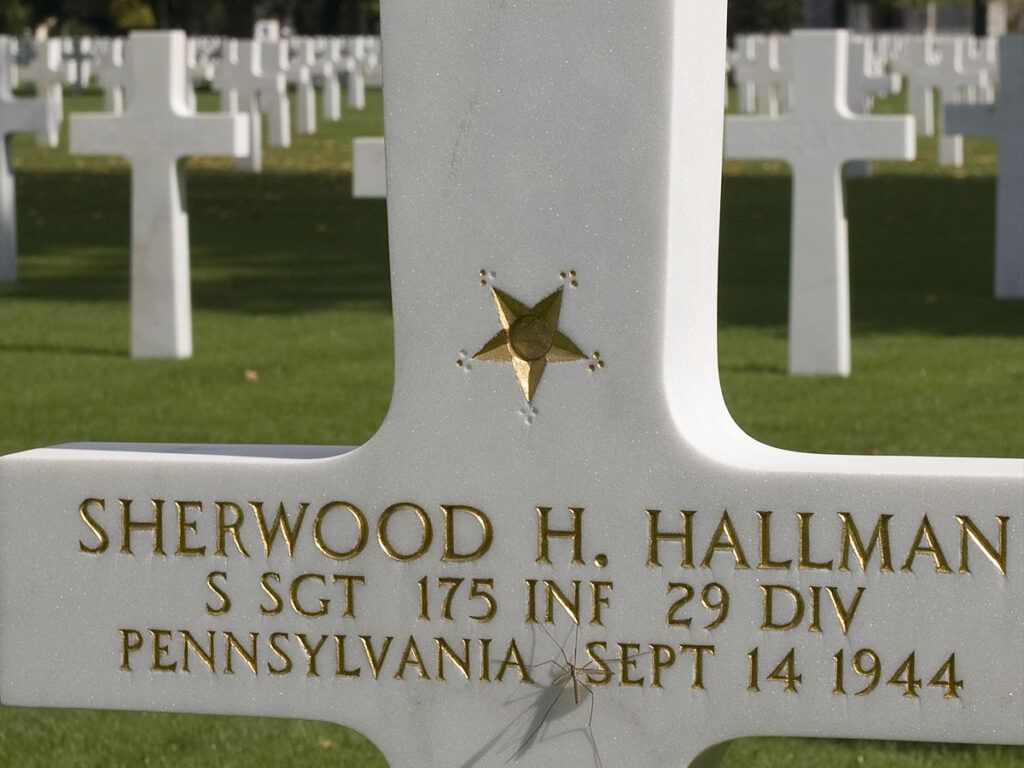
The Establishment of the Cemetery
The Brittany American Cemetery began as the temporary American St. James Cemetery, established on August 4, 1944, by the U.S. Third Army. It covers 28 acres of rolling farmland near the border between Brittany and Normandy.
After the war, this location was chosen as a permanent resting place for American soldiers. Today, it contains the remains of 4,410 Americans who died fighting for freedom in the European theater. Most lost their lives during the Normandy and Brittany campaigns of 1944.
The cemetery’s design honors these brave soldiers with dignified simplicity. A memorial wall commemorates those missing in action. The cemetery officially became a permanent American memorial on French soil, symbolizing the enduring friendship between the two nations.
When you visit, you’ll find a peaceful place of reflection among the hedgerows where young Americans made the ultimate sacrifice for freedom.
Visiting the Brittany American Cemetery
The Brittany American Cemetery offers visitors a moving experience to honor those who sacrificed their lives during World War II. This peaceful 28-acre site in the rolling French countryside serves as both a memorial and a place of reflection.
Location and How to Get There
The Brittany American Cemetery is located near the eastern edge of Brittany in France, not far from the town of St. James. You’ll find it nestled in the beautiful rolling farmland that characterizes this region.
If you’re driving, the cemetery is accessible via well-marked roads from nearby cities. Many visitors combine their trip with a visit to Mont Saint-Michel, which is about an hour’s drive away.
Public transportation options are limited, so renting a car gives you the most flexibility. Another excellent option is booking a guided tour from cities like Bayeux or Rennes, which often include transportation and informative commentary about the cemetery’s historical significance.
For those without a car, taxis from St. James are available but should be arranged in advance.
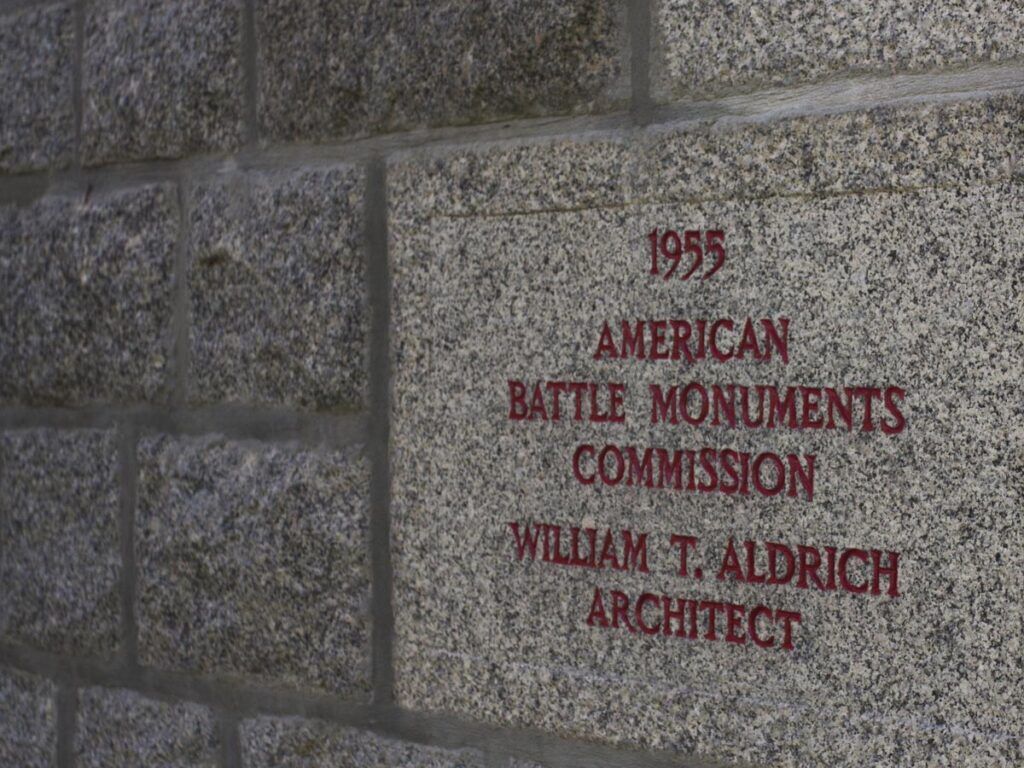
Best Times to Visit
The cemetery is open to visitors year-round, but the weather in Brittany can impact your experience. Late spring (April-June) and early fall (September-October) offer pleasant temperatures and fewer crowds.
Memorial Day (last Monday in May) features special commemorative ceremonies that provide a deeply moving experience. If you visit during this time, arrive early as attendance is typically high.
Summer months (July-August) bring the most visitors and warmest weather. The cemetery grounds are particularly beautiful then, with meticulously maintained landscapes in full bloom.
Winter visits offer a more solitary experience for reflection, though the weather can be cold and rainy. The cemetery takes on a solemn beauty in winter that some visitors find especially meaningful.
Morning visits usually provide the calmest atmosphere for quiet contemplation of this important historical site.
Saint-James Accommodation Guide
When visiting the Brittany American Cemetery, you’ll find several lodging options nearby. The town of Saint-James offers comfortable accommodations for travelers paying tribute to fallen WWII heroes.
Hotels in Saint-James provide convenient access to the cemetery. These range from charming family-run inns to more modern establishments, giving you flexibility based on your preferences and budget.
Expanding your search to neighboring towns like Avranches and Pontorson increases your options. These towns are just a short drive from the cemetery and offer additional amenities.
Mont Saint-Michel, a spectacular UNESCO World Heritage site, is also nearby. Staying here combines your cemetery visit with one of France’s most stunning landmarks.
Recommended nearby hotels:
- Chateau De Chambres Mont St Michel
- Hotel Normandie
- Maison Saint James
- B&B La Gautraie
- Chambre Les Anges
Booking in advance is wise, especially during summer months when tourism peaks in Normandy. Many hotels offer flexible booking options to accommodate changing travel plans.
For the best experience, look for accommodations that provide peaceful surroundings after your cemetery visit. The quiet beauty of the Normandy countryside offers a fitting atmosphere for reflection.
Local bed and breakfasts often provide a more personal touch with insights from hosts who know the area well. You might gain valuable perspectives on local history not found in guidebooks.
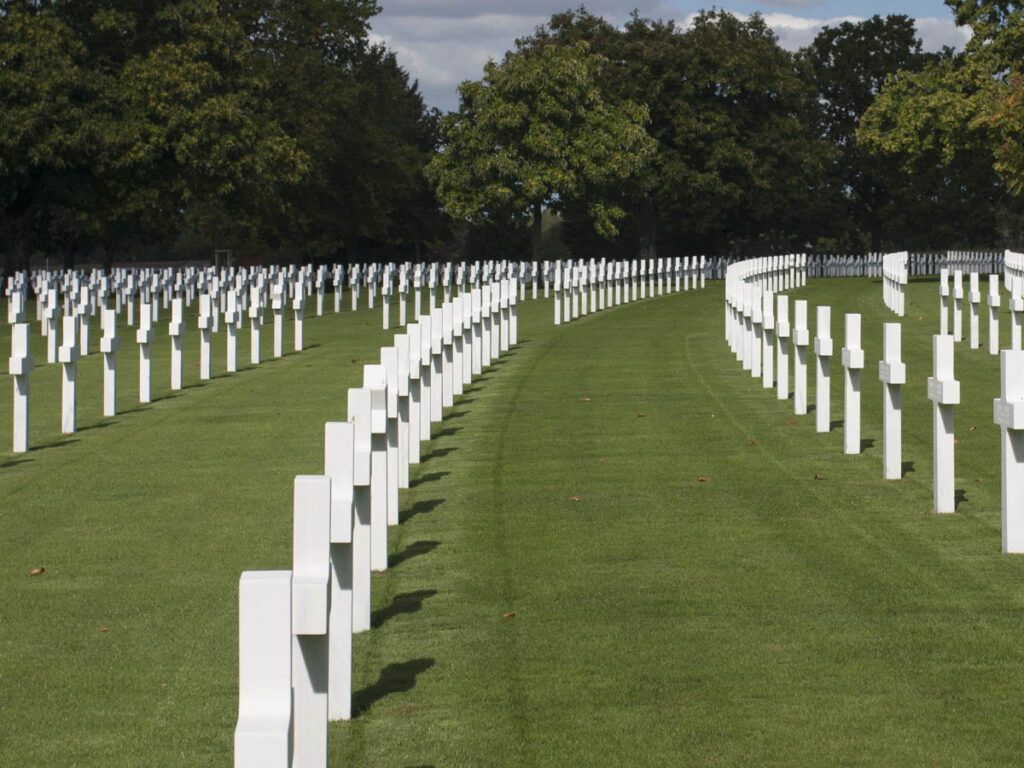
Guided Tours
Visiting the Brittany American Cemetery can be deeply moving. Taking a guided tour enhances this experience by providing historical context and personal stories of the brave soldiers remembered here.
Several private tour options include visits to both the Brittany American Cemetery and Mont Saint-Michel. These combined tours typically last 8-9 hours and offer a perfect balance of solemn remembrance and architectural wonder.
Tour companies provide English-speaking guides who specialize in WWII history. You’ll learn about Operation Cobra and the Normandy breakout that these fallen soldiers participated in during the summer of 1944.
Recommended D-Day Tours from Paris:
- From Paris: Normandy D-Day Beaches Day Trip
- From Paris: 2-Day Normandy & Brittany Tour
- Normandy American D-Day Experience (From Bayeux Station)
Recommended D-Day Tours from Bayeux:
- From Bayeux: American D-Day Sites in Normandy Full-Day Tour
- From Bayeux: American D-Day Sites in Normandy Half-Day Tour
- From Bayeux: Half-Day Normandy WWII Sidecar Tour
- Full-Day US Battlefields of Normandy Tour from Bayeux
Recommended Private D-Day Tours:
- From Paris: Normandy D-Day Landing Beaches Full-Day Tour
- From Rouen: Normandy D-Day Beaches Private Full-Day Tour
- Private Tour: Rouen, Bayeux, and Falaise Day Trip from Bayeux
- Normandy WWII Private Half-day Sidecar Tour From Bayeux
Recommended Band of Brothers Tours:
The best time to visit is March through May when the weather is mild and the grounds are beautifully maintained. You’ll avoid summer crowds while still enjoying comfortable conditions for walking the cemetery grounds.
Tour prices typically range from €95-€180 depending on group size and inclusions. Most tours include transportation, guide services, and entrance fees.
Booking in advance is highly recommended, especially during peak travel seasons. Many visitors combine their cemetery visit with Mont Saint-Michel since they’re in the same region of Brittany.
Remember to wear comfortable walking shoes and dress respectfully when visiting this memorial site. Your guide will help you understand the significance of this hallowed ground where 4,410 American heroes rest.
The Memorials and Chapels
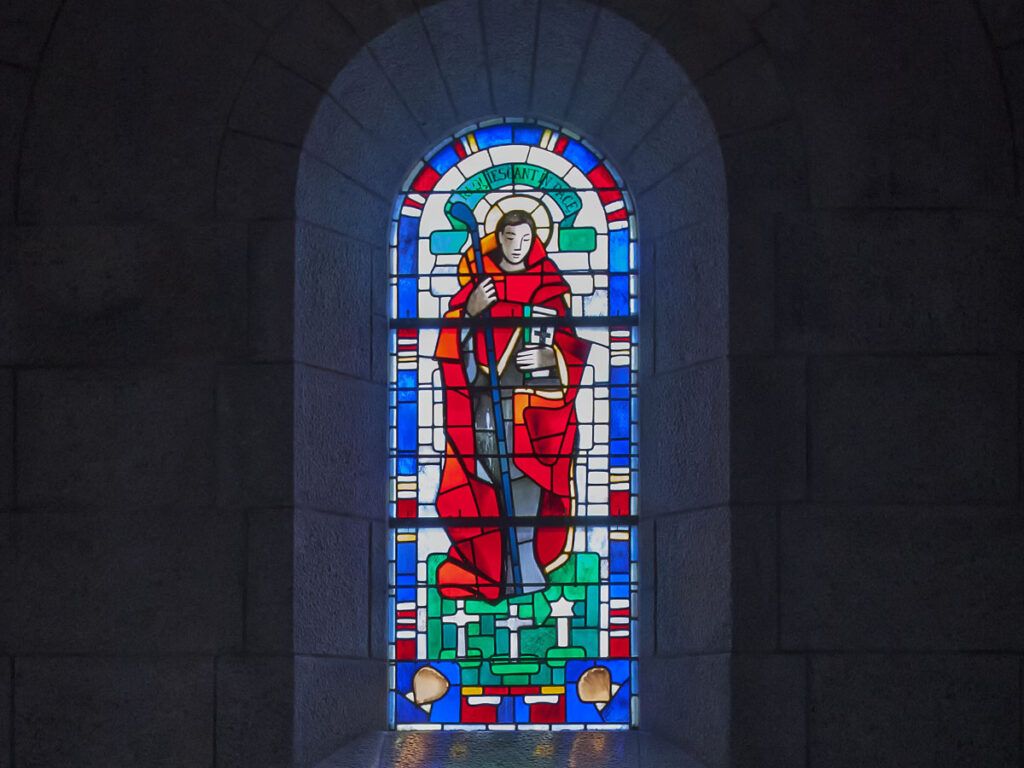
Brittany American Cemetery’s memorials and chapel stand as powerful tributes to those who sacrificed their lives during World War II. These sacred spaces blend artistic design with deep meaning, creating places for reflection and remembrance.
Design and Architecture
The memorial structures at Brittany American Cemetery showcase impressive mid-century design that honors the gravity of sacrifice. The main memorial consists of a rectangular structure with a colonnade facing the burial area. This elegant limestone building houses maps and narratives that explain the military operations in the region.
The chapel’s architecture balances simplicity with dignity. Large windows allow natural light to illuminate the interior, creating a peaceful atmosphere for visitors. The materials used—primarily limestone and marble—were chosen for both their beauty and durability in the Brittany climate.
Visitors will notice how the memorial’s position offers views across the cemetery grounds, connecting the architectural elements with the landscape of remembrance.
Chapel Inscriptions and Symbolism
Inside the chapel, you’ll find moving inscriptions that honor the fallen. Biblical verses and quotes about sacrifice and freedom appear on the walls, providing comfort to those who visit. The altar features simple yet powerful symbolism representing faith and hope.
The ceiling displays the Great Seal of the United States, reminding visitors of the nation these soldiers represented. Look for the Stars and Stripes motif integrated throughout the chapel’s design elements.
The Tablets of the Missing list 498 names of those who have no known grave. Each name is carefully engraved, preserving their memory. Small rosettes mark the names of those whose remains were later recovered and identified—a touching detail showing the ongoing commitment to remembering every service member.
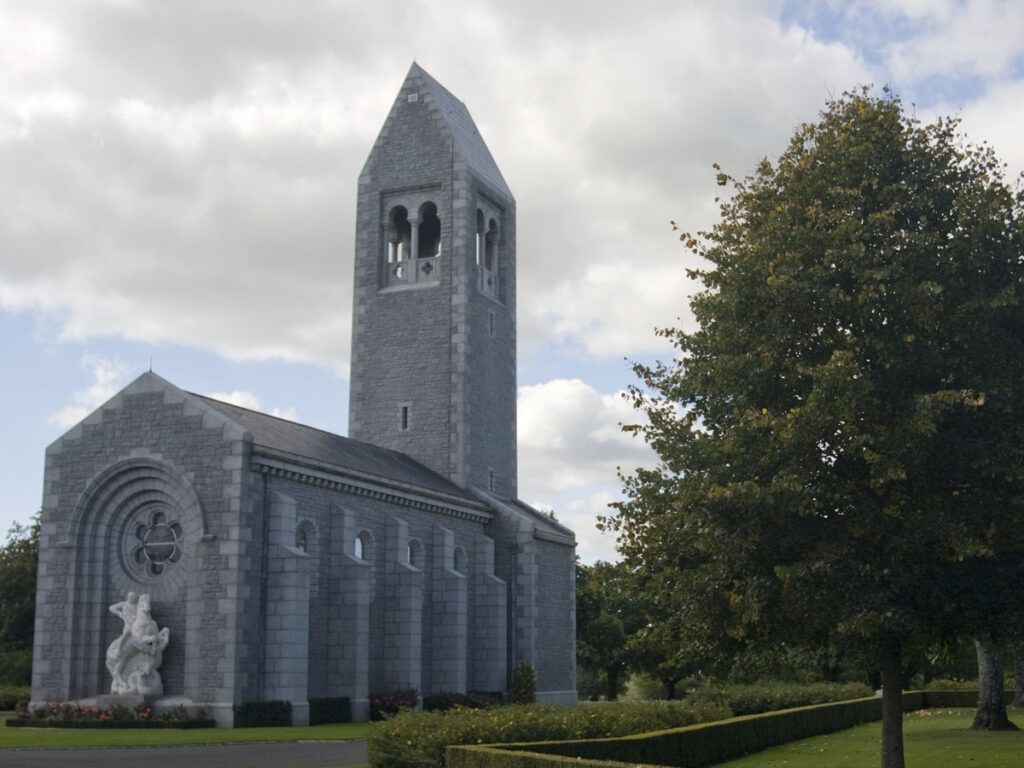
The Fallen Heroes
Brittany American Cemetery honors 4,409 American service members who made the ultimate sacrifice during World War II. Most of these heroes fought in the Normandy invasion and the liberation of Brittany in 1944.
Profiles of the Brave
Among the fallen at Brittany Cemetery are soldiers from diverse backgrounds who shared a common mission. You’ll find graves of young men who never returned home – some as young as 18 when they died fighting for freedom. Medal of Honor recipients rest here alongside privates and generals, showing how valor knows no rank.
The cemetery contains remains of soldiers from all military branches. Many died during Operation Cobra in July 1944, which helped break through German defenses after D-Day. Some fought in the difficult hedgerow country, while others perished liberating Brittany‘s towns and ports.
When you walk the grounds, take time to notice the names and home states on the crosses and Stars of David. Each represents a life cut short and a family forever changed.
The Stories Behind the Graves
As you explore the cemetery, you’ll discover personal stories that bring history to life. Nearly 500 names appear on the Walls of the Missing – soldiers whose remains were never recovered or identified. These MIA (Missing in Action) heroes deserve the same reverence as those buried beneath the markers.
Some families requested their loved ones be buried here rather than returned home. They rest in this beautiful corner of France, forever connected to the land they helped liberate. The meticulous cemetery records preserve details about each soldier – their units, hometowns, and dates of KIA (Killed in Action).
Look for groups of graves from the same unit, often indicating men who died together in battle. Many soldiers here fought their way from Normandy beaches through the Ardennes during the war’s final chapters. Their sacrifice ensured freedom for millions of Europeans and changed the course of history.
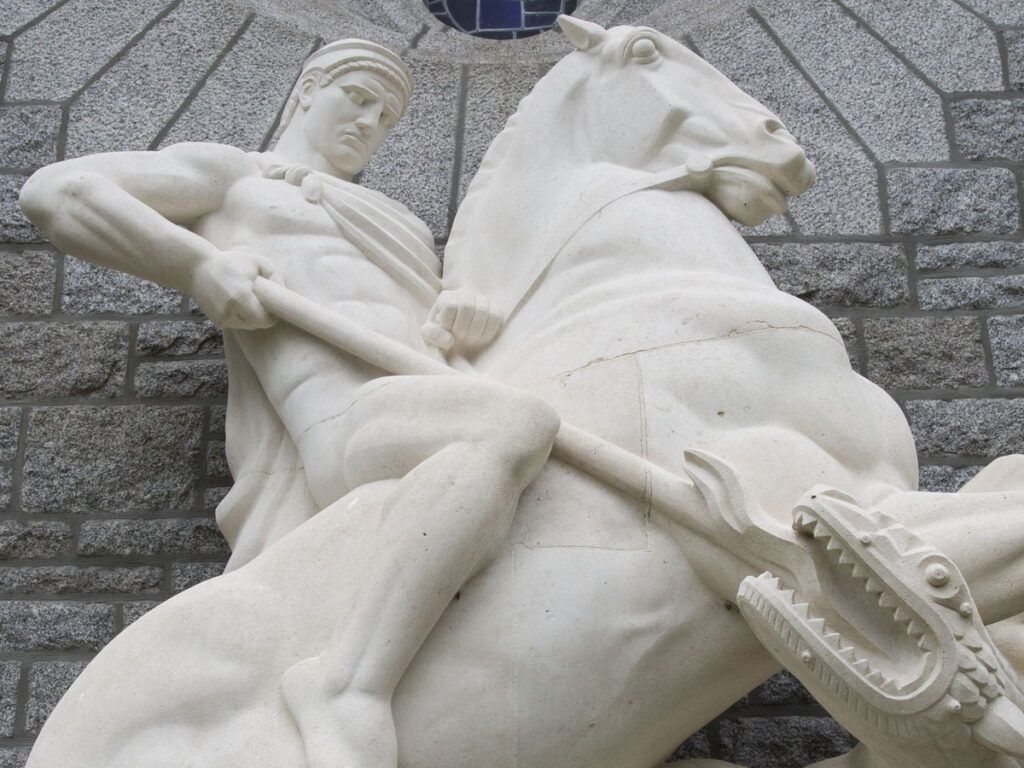
Nearby Historical Sites
The area surrounding Brittany American Cemetery offers remarkable historical experiences within easy driving distance. You’ll find rich connections to World War II history, medieval marvels, and authentic Breton culture all within reach.
Normandy and D-Day Beaches
Visiting the D-Day beaches provides essential context for understanding the significance of Brittany American Cemetery. Omaha Beach, just 75 miles northeast, offers a somber reminder of the Allied invasion that began the liberation of Europe. The beach still holds a quiet dignity, with monuments marking the hard-fought landing.
The Normandy American Cemetery at Colleville-sur-Mer sits atop the bluffs overlooking Omaha Beach. Its 9,388 graves tell stories of extraordinary sacrifice. Don’t miss the Normandy Memorial Museum nearby for exhibits that explain the complex D-Day operations.
Utah Beach, Gold Beach, Juno Beach, and Sword Beach are all within a day’s drive. Each has its own visitor center highlighting different aspects of Operation Overlord. The Pointe du Hoc Ranger Monument, with its bomb craters and bunkers, shows the battlefield much as it appeared in 1944.
Mont St-Michel and Surrounding Wonders
Mont Saint-Michel, just 14 miles from Brittany American Cemetery, rises dramatically from the bay like something from a fairy tale. This medieval abbey-topped island connects to the mainland via a modern bridge that replaced the causeway in 2014.
Tip: Visit early in the morning or late afternoon to avoid the heaviest crowds. The narrow streets wind upward past shops and restaurants to the magnificent abbey at the summit.
Nearby, the charming port town of St. Malo delights with its walled city and maritime history. Walk the ramparts for stunning views of the emerald coast. The town was heavily damaged during WWII but carefully reconstructed to preserve its character.
Another gem is Honfleur, with its picturesque old harbor lined with tall, narrow houses. Artists like Monet and Boudin were inspired by its unique light and atmosphere. The wooden Church of St. Catherine, built by shipbuilders, showcases nautical construction techniques.
Cultural Excursions in Brittany
Brittany’s distinct Celtic heritage sets it apart from the rest of France. In Rennes, the regional capital, half-timbered houses line medieval streets. The Saturday morning market at Place des Lices ranks among France’s best for local delicacies.
The walled city of Dinan transports you to medieval times with its cobblestone streets and 13th-century castle. It’s one of Brittany’s best-preserved historical towns.
For coastal charm, nothing beats the fishing villages along Brittany’s jagged coastline. Cancale is famous for its oysters, which you can buy fresh from market stalls and enjoy while looking out at the sea.
Local customs: Brittany maintains its own language (Breton), music traditions featuring unique instruments like the bombarde, and culinary specialties including galettes (savory buckwheat crepes) and kouign-amann (a buttery pastry dessert).
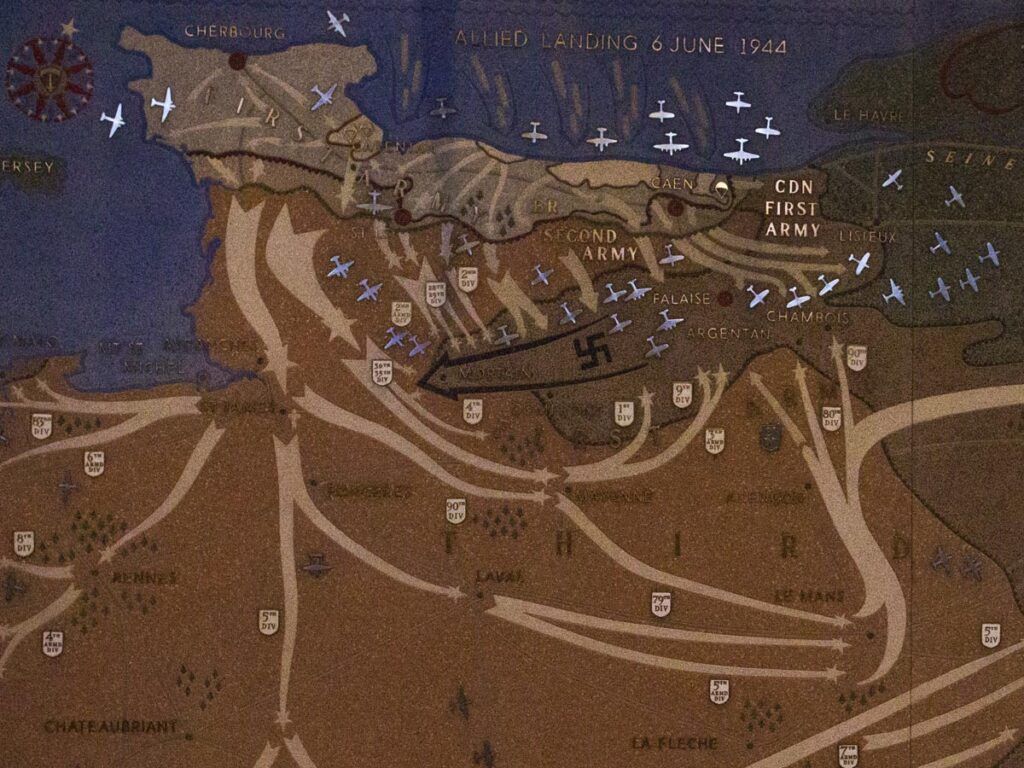
Practical Information
Visiting Brittany American Cemetery requires some preparation to make the most of your experience. Here’s what you need to know about facilities and regulations during your visit.
Facilities and Accessibility
The cemetery is open daily from 9 a.m. to 5 p.m. throughout the year, except for December 25 and January 1. It remains open on local French holidays, making it accessible during most of your trip to Brittany.
A visitors’ building with comfortable furnishings is available on site. Here you can get information about grave locations and learn more about the cemetery’s history. The staff can also help you locate specific memorials if you’re searching for a relative.
Free guided tours are offered upon request, depending on staff availability. These tours provide valuable insights into the cemetery’s significance and the stories of those buried there.
The 28-acre grounds feature rolling landscapes that may present challenges for some visitors. Most pathways are accessible, but comfortable walking shoes are recommended.
Photography and Regulations
Photography is permitted throughout the cemetery for personal use. You’re welcome to take photos of the memorials, graves, and landscapes to document your visit.
When photographing, please be respectful of other visitors who may be there to honor fallen family members. Avoid using flash photography inside the visitors’ building or during ceremonies.
Proper decorum is expected during your visit. The cemetery is a place of remembrance and honor, so quiet, respectful behavior is appreciated.
Large bags and backpacks may be subject to inspection upon entry. Food and drinks (except water) are generally not permitted on the grounds, though you can find places to eat in nearby towns.
Pets are not allowed on the cemetery grounds, with the exception of service animals. Plan accordingly if you’re traveling with animals.
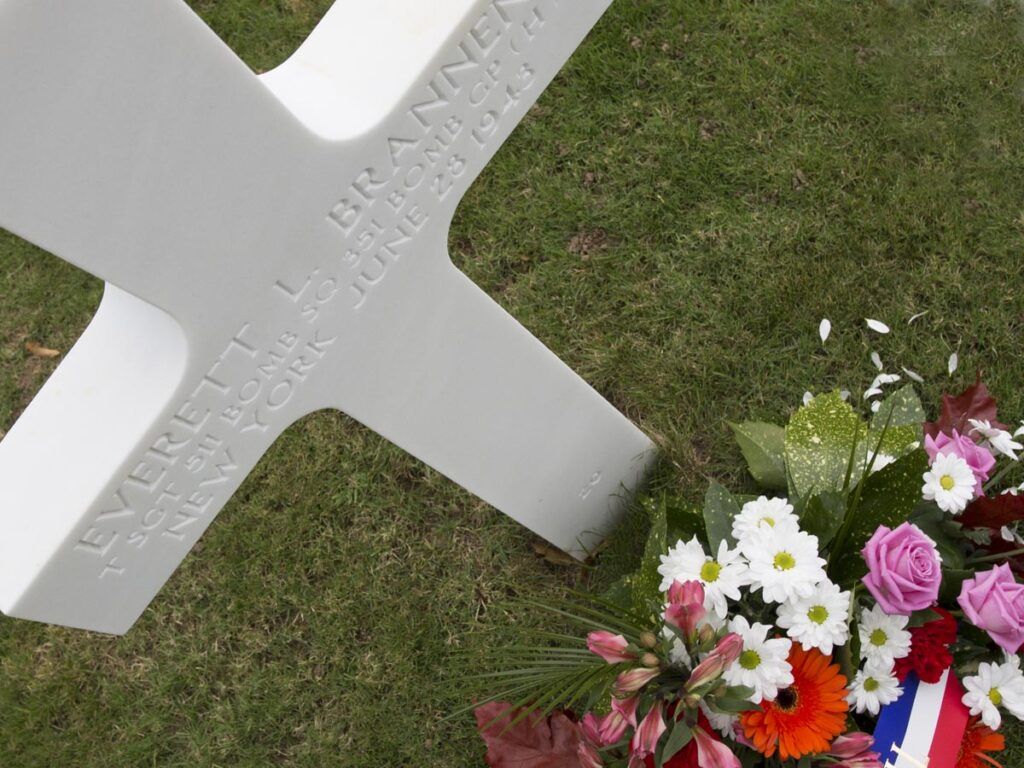
Tributes and Events
Visitors to Brittany American Cemetery can participate in several commemorative events throughout the year that honor the brave soldiers who gave their lives during World War II.
Memorial Day Ceremonies
Memorial Day celebrations at Brittany American Cemetery are truly moving experiences. Each year on the last Monday in May, the cemetery hosts a special ceremony with military honors, speeches, and wreath-laying.
In 2024, soldiers from the 2nd Cavalry Regiment participated in these solemn remembrances. The events typically include color guards, military bands, and representatives from both American and French governments.
You’ll witness veterans, active service members, and families gathering to pay respects. Local French citizens often attend too, showing the lasting bond between the nations.
If you plan to visit during Memorial Day weekend, arrive early as ceremonies usually begin mid-morning. Bring water and consider sun protection as the events take place outdoors.
Personal Tributes to the Fallen
Even when formal ceremonies aren’t taking place, you can pay your own respects to the fallen soldiers. Many visitors leave small American flags, flowers, or personal notes at individual graves.
The cemetery staff provides resources to help you locate specific graves if you’re visiting to honor a family member or someone from your hometown.
You might want to participate in the cemetery’s “Adopt a Grave” program where you can tend to a specific soldier’s final resting place. This personal connection creates a powerful experience.
Taking rubbings of headstones is not permitted, but photography is allowed for personal use. Consider bringing a small token from the soldier’s hometown to leave as a meaningful tribute.

